- Hospitality Industry

Top 10 Trends in the Hospitality Industry in 2024

January 10, 2024 •
15 min reading
What are the latest trends in the hospitality industry? As a testament to its resilience, agility and innovative spirit, this article reflects today’s increasingly dynamic hospitality industry in terms of its long, medium and short-term evolution. Discover the industry's adaptability and forward-thinking approach, shaping its trajectory in the face of challenges and opportunities, while staying attuned to the latest hospitality trends.
Best-selling author, Will Guidara, claims “We are entering into a hospitality economy” – suggesting that what underpins the essence of hospitality, (service excellence, human interaction, personalization and the co-creation of memorable experiences), is actually what many sectors of industry are desperately in need of today.
As we charge at break neck speed towards an ever-more digitalized society , the hospitality industry stands out as the successful hybrid that balances the implementation of tech innovation for improved operations whilst preserving the human need for connection, authenticity and real-life discovery.
With statistics predicting a healthy expansion of the sector (e.g., the bleisure and wellness markets on the up, room demand set to reach an all-time high, booking.com as the most valuable tourism brand in the world, and new positions opening up in the sector), we can confirm that the hospitality industry is poised for a significant transformation in 2024.
So what new trends are emerging? Driven by interlinked factors, including technological progress, evolving consumer preferences and a deeper focus on sustainability, hospitality businesses can capitalise on emerging opportunities to enhance guest experiences and position themselves for long-term success.
10 hospitality trends 2024 - Elevate experiences, embrace evolution
- Workforce empowerment: Transforming challenges into opportunities
- Artificial intelligence and technology: Choosing the best tech to revolutionize hospitality
- Culinary experiences: Putting experiences, authenticity and the senses first
- Bars and drinks redefined: Adding creativity and design to the drinks' menu
- Fine dining: In need of reinvention but full of potential
- Fine wine prices: Navigating the fluctuating vineyard market
- Rising interest rates: The impact on hotel property values and transactions
- Green hospitality: Beyond sustainability to net positivity
- Data-driven decision-making: Data-analytics for optimum personalization
- The power of social media: Crafting authentic narratives
1. Workforce empowerment: Transforming challenges into opportunities
Over the past two years, the industry's biggest challenge has not been attracting customers but rather finding and retaining staff. To address this issue, many hotel groups have begun to make improvements, and there has never been a better time for newcomers to the industry to negotiate better working conditions and salaries.
Today, many hotels offer their staff free or low-cost accommodation , increased wages and reduced peak-time working hours. They also invest in training programs to motivate staff and allow mobility up the corporate ladder. Empowered employees not only have a positive impact on how guests feel and their decision to become repeat guests, but also help attract other employees to build a cohesive, high-quality workforce.
2. Artificial intelligence and technology: Choosing the best tech to revolutionize hospitality
As Chat GPT celebrates its first birthday, we can only surrender to the fact that, like it or not, we have entered into an AI-accelerated world, and consequently, the pace at which the industry adapts has become a pressing issue. But which forms of AI best harness hospitality stakeholder outcomes?
Contactless services: Effortless technology, impeccable stay
Embracing contactless technologies is about redefining the hospitality experience to cater to modern travelers, not just adapting to the pandemic-driven shift toward touchless interactions. Contactless services simplify the guest journey by reducing wait times and physical contact points. Mobile check-in, digital keys and voice or tablet-controlled room automation allow guests to move seamlessly through the hospitality experience. The citizenM hotel brand has pioneered this minimum-fuss check-in and room experience with a hugely successful UX-friendly app.
Other popular tools such as WhatsApp allow hotel staff to remain in constant contact with customers during their stay, respond immediately to requests and thus provide bespoke services. It also streamlines operations by reducing the need for face-to-face interactions and human error, improving service delivery and lowering the burden on a scarce workforce. In line with contactless services , hospitality companies need to prioritise data privacy and security, putting solid safeguards in place to protect guest information against cyber threats.
Technology-driven innovation: Beyond boundaries
At the heart of technology innovation is the ability for managers and employees to centralize information at all times. Migrating to a fully cloud-based solution is a first but essential step . This enables real-time sharing, better service orientation and personalisation of the guest experience, improving all hotel departments.
Robotic systems (as used in the Henn-na Hotels in Japan) optimise processes and increase efficiency in back-of-house operations such as housekeeping or F&B outlets, reducing staffing requirements and allowing managers to respond to problems in real-time and with accountability.
The use of augmented reality helps with staff onboarding, allowing new employees to be put in real-life situations and trained before even entering a room. Pedagogically speaking, as practiced at EHL in the Virtual Housekeeping class, AR provides a more interactive and complete learning environment. Augmented reality also allows hotels and airlines to market themselves in an ad hoc style - an innovative and sustainable approach. Potential customers can better immerse themselves in the facilities and make more informed decisions.
Hyper-personalization: Tailored moments, lasting loyalty
In a world of commoditised practices, guests are increasingly looking for personalized experiences that cater to individual preferences and aspirations . In the hospitality industry, hyper-personalisation means relying on technology-based micro-segmentation to tailor each guest interaction to real-time needs and behaviours. For example, eliminating 'deadlines' such as check-in/check-out/F&B closing times, knowing whether a customer wants to be accompanied through check-in or do it contactless, personalizing room temperature, lighting and amenities or tailoring F&B options promptly and accurately. At Fauchon l'Hotel in Paris clients suggest the menu and define their portion sizes. From a hotel perspective, this enables better dynamic pricing strategies, higher guest-spent for experiences, or tailored loyalty programmes with commercial partners.

3. Culinary experiences: Putting experiences, authenticity and the senses first
The desire to experience rather than simply consume means that experiential dining has today evolved in new ways. Hotels are now required to offer a range of dining options to cater to different customer tastes and, when correctly done, can become a culinary destination where the restaurant is at the heart of the experience and not just an extension of the hotel. A good example is the Grand Resort Bad Ragaz in Switzerland which boasts seven restaurants, three bars, a bistro, a café and a sushi takeaway, (plus an array of Michelin stars and GaultMillau points), unsurprisingly making it a mecca for traveling gourmets.
Experiential design can also allow customers to taste food in a multi-sensory environment that stimulates all the senses, not just the taste buds (e.g., Ultraviolet by Paul Pairet in Shanghai ). Some hotels have started to provide experiences even on a smaller and more dynamic scale. E.g., They offer four-hand dinners (an invited chef cooks with the in-house chef), organise kitchen parties (clients eat in the kitchen), or have a front-cooking area. Specialist cooking classes can complement this. The key here is to offer a unique experience like how to make your own gin, cook local food , or bake bread with the experts.
Another trend relates to children . A menu of unimaginative, standard food à la burger and chips is no longer enough; parents want their children to eat healthier, globally-inspired food with high-quality ingredients. Adding world food or plant-based products and packaging them in innovative ways will make for happy families likely to return.
A final significant trend in the food sector is off-premise dining and digitalisation. Although customers have returned to eating in restaurants since the pandemic, a large proportion mix on- and off-premise dining. Restaurants need to cater to this clientele to increase revenues, as takeaways are no longer limited to fast food but also exist for traditional and even fine dining. This means that restaurants need to reorganise their workflows and operations to cater to in-house diners and delivery, alongside designing appropriate, creative, high-quality packaging and optimising delivery or collection methods to be easy and inexpensive without competing with traditional delivery platforms.
This can also include ghost kitchens focusing only on food production for delivery and takeaway. Post-Covid, ghost kitchens have become an increasingly popular trend in the restaurant industry with statistics showing that they are projected to be a $157 billion market by 2030. As of 2021, there are over 100,000 ghost kitchens operating worldwide .

4. Bars and drinks redefined: Adding creativity and design to the drinks' menu
Today's bars need to stand out by offering unique drinks paired with a special, Instagrammable atmosphere to create an immersive experience for their customers. E.g., Ashley Sutton Design Bars are known across Asia for their ability to transport guests to enchanting, immersive worlds, offering not just a place to drink but an entire experience that stimulates the senses and sparks curiosity.
Gone are the days of a simple wine list and international beer and spirit brands. Bars and restaurants need to specialise and cater to an international clientele with evolving tastes. A dedicated beer menu with local craft beers, wines from specific vintages and terroirs with a narrative, eclectic spirits collections (after whisky and gin, look out for rum in the coming years), and fresh hyper-locally sourced juices are what customers want.
Mixology has been around for some time, but offering mocktails and non-alcoholic food pairings is also becoming essential due to stricter alcohol laws and healthier lifestyles driven by Gen Z and millennials. Faux booze has gone mainstream and now it’s not just a case of ‘dry January’, but mocktails all year long! Cocktail and mocktail innovations should go beyond traditional recipes to include unique ingredients, techniques and presentation styles (e.g., Bar Benfiddich in Tokyo ) and be taught to customers in mixology classes.

The effect of economic uncertainty on hotels, restaurants and fine wines
5. fine dining: in need of reinvention but full of potential.
The pandemic has unexpectedly affected consumer behaviors: they now organize themselves on short notice, have become increasingly spoilt for choice and no-shows are today the norm . More and more restaurants are responding by asking for a credit card at the time of reservation. But this only treats one of the symptoms without solving the problem. "A full house one day, but only four tables occupied the next" , is an observation that led Antoine Lecefel to shut his restaurant – sadly one of many fine dining establishments to do so.
Inflation and declining purchasing power play a part, but more generally, the fundamental problem lies in the inability of fine-dining restaurants to reinvent themselves. Unlike hotels and other players in the hospitality industry that increasingly compete with them through ambitious and innovative culinary projects, they have to contend with limited financial and human resources. They have neither the capacity to implement and manage a proactive strategy nor the means to invest in cutting-edge, highly experiential concepts. Initiatives such as Eatrenalin , which create a unique experience by combining gastronomy, décor and entertainment, offer a glimpse of this changing industry and the new competition facing traditional players.
Solutions? A strong, contemporary concept plus a business-oriented management that understands consumers, connects with them and is thought through from the outset to generate margins and create synergies and/or economies of scale. The Igniv chain is a shining example of this, driven by an extraordinary chef and based on the principle of “we love to share”, Andreas Caminada has created a unique and fully coherent concept, the success of which is now being rolled out in various locations, all of which have been rewarded with rave reviews from customers and expert guides.
6. Fine wine prices: Navigating the fluctuating vineyard market
Another challenge facing restaurants is cellar and wine list management. Restaurants with limited financial resources may even wonder whether fine wines still have their place on their menu . Indeed, fine wine prices have risen almost exponentially since the Global Financial Crisis of 2008. But here, too, the situation appears to have changed.
A year ago, fine wine prices were at record highs. Demand for rare, artisanal wines from regions with long-standing terroir reputations was at its peak. One could go on about Burgundy, but many other examples are as revealing. For example, the Châteauneuf-du-Pape Réserve cuvée from Rayas, worth between 150 and 200 euros (for young vintages) less than a decade ago, has soared to reach and exceed the 2’000 euro mark. At this point, voices suggested that this was normal; inflation should also positively impact the prices of fine wines. But there is no reason this should be the case: demand drives prices, not production costs. Fine wines attract wealthy people, collectors and investors. For them, the resources that can be invested in wine depend on economic conditions and financial markets. The latter have fallen sharply since the beginning of 2022. Not surprisingly, wine prices have followed the same trend.
The most spectacular move was in Burgundy wines. Prices had become so high that these wines had detached from the rest of the market. Just a year ago, many wines from the 2019 vintage were selling for several thousand euros a bottle. One wondered whether these wines had permanently changed their status and would never be traded at lower prices again. Today, the trend has abruptly reversed, and it appears more like a speculative bubble that has begun to implode. Time will tell. The fine wine market offers an almost perfect setting for this kind of phenomenon: herding behaviour is common, and, in the end, price levels depend not on financial arguments but simply on what people are willing to pay for a bottle.
7. Rising interest rates: The impact on hotel property values and transactions
As we have seen with wine, economic conditions considerably impact on the value of tangible assets. The same applies to real estate . The market proved relatively resilient last year, thanks to the ability of hotels to pass on (sometimes more than proportionally) higher costs to their customers, while maintaining high occupancy rates. The increase in RevPar thus more than offsets the rise in discount rates.
Today, consumers having finished dipping into their COVID-19 savings and interest rates remaining high, the very long upward cycle in hotel property values has ended. What remains as a stabilising factor is the fact that the pipeline of hotel projects is thin. In other words, supply is likely to stagnate over the coming years and should thus not contribute to aggravating the supply-demand imbalance. Nonetheless, we can expect pressure on prices. Refinancing transactions will further exacerbate this, which will take place on far less favourable terms over the next 12-24 months. As is always the case in this type of environment, we can expect forced sales, sometimes at substantial discounts to current valuations.
Another consideration is sustainability . The residential real estate market is becoming highly selective, making it hard to rent and make profitable properties with an unfavourable environmental record. This trend has already begun and will likely intensify, affecting commercial real estate in a major way. In other words, hotels that have not been renovated and adapted to today's standards and expectations will likely suffer more than proportionately.
Other trends that have been, still are, and will continue to shape hospitality
8. green hospitality: beyond sustainability to net positivity.
After a period of harvesting low-hanging fruit, hospitality groups are increasingly looking for more innovative and meaningful ways to implement, measure and communicate their sustainability practices . In the F&B industry, local sourcing has become standard in many outlets. However, it has now started to scale up more by offering better traceability of products (e.g., The Europe Hotel in Ireland has its own farm with livestock, fish, and produce ). In addition, guests are increasingly being educated on sustainable practices, e.g., cooking classes on how to use the entire ingredients and avoid food waste. It is no longer about doing good but rather showing customers how to do good.
Hospitality groups are also increasingly adopting sustainable building techniques and are generally trying to adopt a 360-degree strategy that allows them to be sustainable from the first brick up to the operation (e.g., the Beyond Now Network where industry experts have joined forces to transform hospitality businesses into environmentally friendly, efficient and profitable enterprises). Some are going even further, not content with being net zero but aiming to become net positive, exemplified by ‘regenerative tourism’ practices .
9. Data-driven decision-making: Data-analytics for optimum personalization
"Information is the oil of the 21st century, and analytics is the combustion engine" (Peter Sondergaard, senior vice president and global head of Research at Gartner, Inc.). The current trend is moving away from simply collecting data to engineering and analysing the vast amount of data efficiently into actionable decisions and gaining an edge over competitors.
Today's successful early-adopter hospitality companies have a data-driven business model . For example, through its platform, Booking.com has extensive knowledge of guest and hotel behaviour, which it can use in real-time to adapt its offers and displays and negotiate better deals with hoteliers. The Marriott International hotel chain uses data analytics to personalize guest experiences, with their loyalty program as a major source of data collection.
Data is reshaping hotel marketing, allowing hotels to better monitor guest satisfaction and desires to personalise experiences and better target the customer base . Finally, it enables hotels to increase revenue through more accurate yield and revenue practices by better forecasting demand and thus offering more dynamic pricing strategies.
10. The power of social media: Crafting authentic narratives
This consistent trend is entering a new phase of maturity. First, marketers need to find more innovative ways to capture the attention of customers who are constantly bombarded with messages. With their short video content, the rise of TikTok and Instagram seems promising. It allows the sharing of stories to enhance the storytelling of hospitality outlets (e.g., the customer becomes part of the act through employee or behind-the-scenes videos).
Second, the use of influencers has gained traction in the industry. On average, businesses generate $6.50 in revenue for each $1 invested in influencer marketing . Here, marketers need to find the needle in the haystack with influencers who have enough reach and best fit the hotel's values and story.
Third, with advances in technology and the many options available, marketers need to accurately measure the impact of their social media efforts and finetune the message accordingly. They also need to balance customer and organic content creation and paid or free content. Overall, the cost of social media must be commensurate with the benefits, be professional, authentic and follow a clear strategy in line with traditional marketing efforts.

Master in Hospitality Management
Key takeaway from ehl's hospitality industry trends 2024 - crafting experiences, influencing lives, and paving the way to tomorrow.
In today’s hospitality landscape, it is difficult to confine ourselves to an annual update. Certainly, several general trends have been in place for years and continue to evolve, but by and large, this once cozy industry is constantly innovating and reinventing itself. It is not just adapting to customers. It is creating its own momentum, helping to shape the society and economy of 2024 and beyond.
From computer games to popular films and TV shows, the hospitality industry impacts our daily lives more than we realize. As a sector that thrives on personalized, immersive encounters, it caters not just to our desires for leisure, travel and memorable life experiences but also influences the way we interact, socialize and dream.

Associate Professor of Finance at EHL Lausanne

Associate Professor at EHL
Keep reading

The future of luxury experiences: Where luxury meets hospitality
Apr 09, 2024

The potential of green financing for hotel real estate in Asia
Apr 04, 2024

The future of hotel distribution channels: Seizing opportunity in channel disruption
Apr 03, 2024
The best step-up for a successful career in hospitality
Our Master's in Hospitality Management is an internationally recognized MSc qualification. You will have a choice of four academic routes: CSR & Sustainable Transformation, Finance, Real Estate & Consulting, Food & Beverage Management, or Luxury Experience Management. These routes enable you to specialize through your studies.
This is a title
This is a text
More articles
- Bachelor Degree in Hospitality
- Pre-University Courses
- Master’s Degrees & MBA Programs
- Executive Education
- Online Courses
- Swiss Professional Diplomas
- Culinary Certificates & Courses
- Fees & Scholarships
- Bachelor in Hospitality Admissions
- EHL Campus Lausanne
- EHL Campus (Singapore)
- EHL Campus Passugg
- Host an Event at EHL
- Contact our program advisors
- Join our Open Days
- Meet EHL Representatives Worldwide
- Chat with our students
- Why Study Hospitality?
- Careers in Hospitality
- Awards & Rankings
- EHL Network of Excellence
- Career Development Resources
- EHL Hospitality Business School
- Route de Berne 301 1000 Lausanne 25 Switzerland
- Accreditations & Memberships
- Privacy Policy
- Legal Terms
© 2024 EHL Holding SA, Switzerland. All rights reserved.
When you walk into your hotel, the staff will greet you by name, know your travel preferences, and anticipate your needs. Almost every aspect of your stay will be personalized to your tastes, and you can reconfigure your room at any time to make it suitable for work, exercise, socializing, or sleep. For all leading hotel brands, the well-being of both guests and employees—and the health of the planet—will be top priorities. Welcome to the hospitality industry’s next normal.
The view to 2030 and beyond
Hospitality that benefits people and the planet, more on the future of travel and hospitality.

Three innovations to solve hotel staffing shortages

Travel startups: Disruption from within?

The path toward eco-friendly travel in China

Accelerating the transition to net-zero travel

How to ‘ACE’ hospitality recruitment
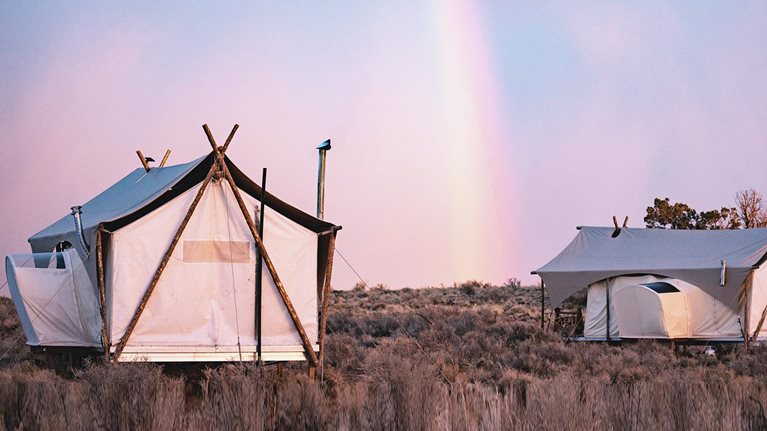
Rebooting customer experience to bring back the magic of travel
The next normal explores the future of grocery, college, video entertainment, and more., latest editions of the next normal, the future of biotech: ai-driven drug discovery, could this be a glimpse into life in the 2030s, the future of video entertainment: immersive, gamified, and diverse.

- Revenue Management Consulting
- Resort Revenue Management
- Revenue Management Outsourcing
- Revenue Manager for Hire
- Hotel Operator Company
- Boutique Hotel Management
- Resort Management
- Hotel Pre-Opening Services
- Hotel Turnaround Management
- Hotel Franchise
- Independent Hotel Chain
- Hotel Representation
- Hotel Owner Representative
- Hotel Concept Development
- Hotel Asset management
- NL +31 205 320 433
- UK +44 203 966 5658
- BE +32 258 890 25
- ES +34 931 641 801
- FR +33 973 038 902
- US +1 202 870 5081
Top Hospitality Industry Trends in 2023
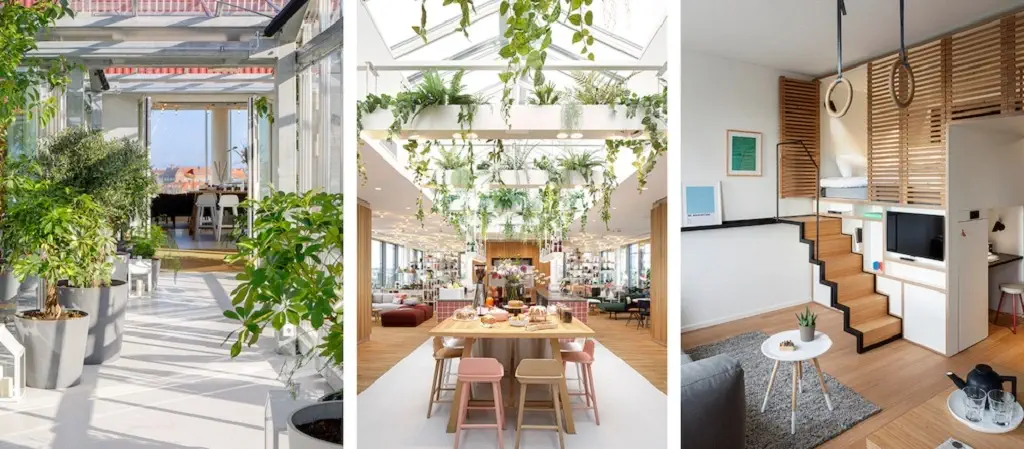
The hospitality industry has undergone a seismic transformation over the last years. This period of change is set to continue through 2023, with shifts in demographics and technology, and the post-pandemic transition to a new normal all playing decisive roles. As a hotel management company with clients around the world, we have seen these trends in the tourism and hospitality industry take shape and evolve.
Join us in this guide to these current and future trends in hospitality, including what businesses can expect and how to proactively take action to future-proof their success.
This article about Hospitality Trends includes:
- Health and Wellbeing
Local Experiences and Cultural Exploration
- Package Strategies
- Personalization
- Streamlining Guest Experiences
- Re-imagining Hospitality Spaces
- Staycations and Exploring other Market Opportunities
- Learning from the Competition
Evolving to Offer a Total Guest Experience
To maintain competitiveness, forward-thinking hospitality businesses are transitioning beyond the traditional model of merely offering “a place to stay” with the usual add-ons of breakfast and so forth. These traditional elements will persist, however, they will be housed within a broader focus on the overall guest experience .
Health and Wellbeing Trends

Dhow Inn Hotel Zanzibar in Tanzania , offering guests a place to unwind
In a post-pandemic world, guests will place much greater focus on their health and wellbeing . Establishments that can anticipate and meet these health-related concerns will position themselves for greater success. Of course, this relates to high standards of hygiene but also to a greater focus on both physical and psychological well being. For instance, you could consider offering classes on meditation, yoga, tai chi, pilates and other such activities. They can also introduce a greater range of vegetarian and vegan options.
What is crucial however, is to not treat these areas as an afterthought or as an inconvenience. These are reflective of the modern and fast-moving hospitality market. Moreover, with the increasing dominance of the Millennial and Generation Z demographic cohorts, such trends are only set to increase.
48.5% of people who travel do so “to open my mind to new cultures and experience” . With this in mind, all types of hospitality businesses, B&Bs, guest houses, and short-stay apartment complexes can take advantage. They can align with local experience providers that complement their own. For instance, a a countryside hospitality venture may wish to partner with local companies that offer activities to do with the great outdoors. Similarly, a city centre guest house could partner with local museums, walking tour guides and so forth, to offer an all-in-one deal. They could also make it exclusive to their guests to make it that much more special.
Another option is to provide such experience and cultural exploration in-house. This would involve more work and commitment rather than forming alliances with specialist third-party providers. However, it enables establishments to keep all services consistently on brand, guarantees customer experience control, and can generate more avenues for revenue.
Streamline Your Hotel Operations
We guide hotels and resorts toward unparalleled success, positioning them as market leaders.

Packaging it Up
Whether it is wellbeing and health or experience and culture, or both, business growth can be driven by designing packages to target distinct customer profile segments . According to the Simplicity Index , “64% of consumers are more likely to recommend a brand because of a simple experience” , demonstrating the benefits of marketing a distilled customer service offering.
Offering package deals for a fixed fee enables to target market where customers desire more specialized stays. For instance, a choosing to offer a wellbeing and digital detox getaway or a city centre culture vulture experience. Such package deals could include room, breakfast and dinner, and activities in the area, all of which could tie into the overarching experiential theme.
Personalization Across Far More Touch Points
The days of one-size-fits-all offerings are declining. Customers are increasingly demanding of experiences that meet their specific and even idiosyncratic wants. And the hospitality businesses that are able to embrace this changing market trend rather than treat it with reticence will win business and guest loyalty.

Spa Services at the Hotel Bowmann Paris
Generic offerings simply don’t cut it anymore to make your property stand out . It is possible to analyze the customer journey from initial booking all the way through to after checkout. A deep recreation of a typical customer journey reveals the incredible number of touchpoints that are personalizable, and which offer an opportunity to provide a bespoke service.
Just a few examples include:
- Either calling or emailing each guest with a personalized message after booking, rather than a generic automated email, asking for preference requests. This personal touch can make an important difference. Automated personalized guest communication is also a possibility, but requires a capable CRM system to be in place along with efforts of the staff to carefully gather and record valuable guest information.
- Making an even better first impression by asking what the guest’s favourite drink is upon check-in, which can then be delivered to their room as a complementary welcome gift.
- Introducing an extra moment of appreciation , Sending a staff member to the guest’s room, or following up a different moment after check-in to see if everything is to their liking.
Training all client-facing employees, including front desk, food and drink staff, and activity sales employees in upselling and cross-selling is another way to drive customer engagement as well as revenue. It is a relatively inexpensive investment that can produce high ROI. Importantly though, employees should be well-versed in upselling or cross-selling to enhance the customer experience with personalized offerings without veering into pushy territory, which can have the opposite effect.
Using Automation the Right Way
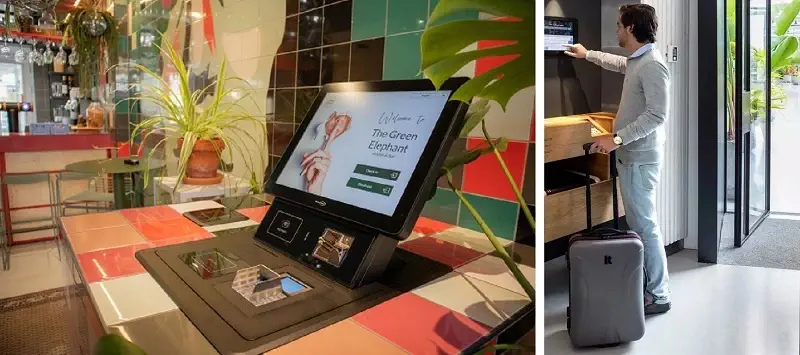
Self check in desks for a streamlined guest experience, at the The Green Elephant Hostel (left) & Zoku Aparthotels (right)
Success with automation is impossible without a strong data function. This means the ability to gather, store, analyze, and interpret quality data to drive business performance . In order to achieve this, there are two options: enter the highly competitive skilled data science professional recruitment market as well as invest in the requisite technology stack and design a data management workflow or experts that provide hotel consulting services.
Harnessing the power of customer data can provide invaluable insights to inform key decision-making. Moreover, it can also support all departments with data-driven automation of repetitive, time-consuming tasks. This can also help address staff shortages faced in hospitality, seasonal fluctuations, and the pressing current issues of inflation and rising wages.
Streamlining the Guest Experience in 2022 and 2023
By focusing on ways to improve hotel operations in an all-encompassing approach , hotels can elevate the guest experience to an unprecedented level. This involves all aspects that form part of the overarching operational function. For instance, upgrading from legacy systems to data-led, digital technologies, and empowering employees with results-focused training on customer experience delivery, hyper-personalized sales (food and drink, spa services, activities, room upgrades, repeat stays), and technology use.
Properties can also integrate customer experience elements that are relatively new to market to offer guests something fresh, new, and convenient. An example is to offer an optional contactless check-in and checkout, which allows guests to bypass the traditional method of going to the front desk. Such integrations can also indirectly impress guests by conveying that they are ahead of the technology trend curve and embraces the change that improves the guest experience.
Reimaging Hospitality Spaces for the New Working World
Tap into the rapid changes in the world of work by also becoming remote and coworking hubs. In 2022, 16% of companies worldwide are fully remote, whereas 58.6% of the entire US workforce is remote . Moreover, these figures are only set to trend up further, with 78% of company respondents in one survey expecting this shift to continue.
Lobbies and underused spaces such as conference rooms or even entire floors that are left dormant in low season periods can suddenly take on a new lease of life . As a result, it is possible to generate new revenue sources, strengthen competitiveness, modernize their brand appeal, and serve the community with a much-needed amenity.
As discussed previously, offering professional working spaces can also tie into overall guest package offers. It enables hospitality businesses to cater to different types of professional clients. From travelling business people to digital nomads, and from local freelancers or even small startups who want a space to work out of, there are various buyer personas that establishments can target. Don´t forget about the rooms either. As a great example shown in the below image, Zoku offers guests both public spaces as well as space inside of the room to comfortably get some work done.
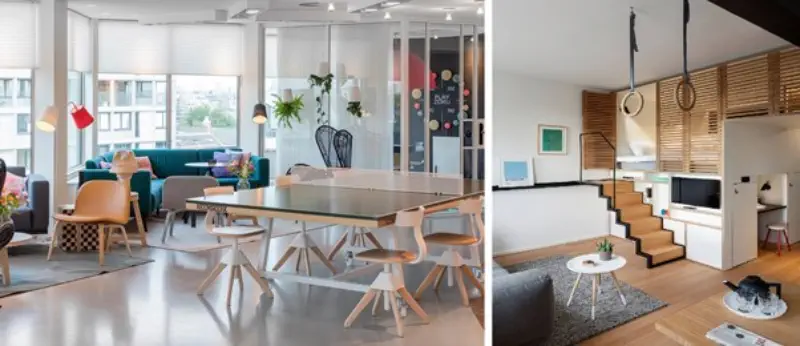
Zoku Aparthotels Amsterdam, reimaging hospitality spaces for the new working world
Growing Non-Core Markets Trends
Depending on the market of the destination, the “bread and butter” income for hotels can come predominantly from people visiting from out of town or the country. However, there is a growing shift away from viewing hotels primarily as merely somewhere to stay to a place that offers a unique, memorable experience. With this in mind, hospitality managers can supplement their main revenue driver – guests visiting from elsewhere on vacation or for business trips – by targeting ancillary markets.
The Local Market for Staycations in Hospitality and Tourism
In the past it sometimes made little sense to target the local market. After all, if people live in the area, why on earth would they want to stay in a local establishment? The trend has shifted as this is no longer the case and the reason is because hospitality businesses are moving beyond merely viewing their main business unit as somewhere to stay overnight.
Targeting the local area with experiential staycations , whether for individuals, couples, or families, is a potentially highly lucrative business driver . Between 2020 and 2021, staycation bookings rose 18% . Getting the experience right leads to a 14% price premium in the hotel industry, according to PwC . Additionally, in the low season, it is the local mark that can sustain a business in hospitality.
Family Experience Package Deals

Family room experience at Kaboom Hotel Maastricht
In one hospitality survey , 76.2% of respondents said that family experience was either an essential or high priority . In the same survey, 72.1% said that “spending time with family and making memories with them is important to why they travel”. This sort of market feedback can direct a property´s strategy by creating all-new experiential packages for families.
Proactive properties are already harnessing their customer data to understand how best to design family packages that go much further than the traditional and somewhat dated one-size-fits-all approach.
“…go much further than the traditional and somewhat dated one-size-fits-all approach…”
The market is more demanding now. Parents increasingly want experiences that corresponds to their specific needs and wants. Those who can meet this demand will be best-positioned to thrive (read more on making your hotel family friendly ).
These are just two examples of how you can diversify your overall business strategy. Depending on so many variables, such as a location, type of hospitality business, product suite, and so forth, there are many possible ancillary markets that establishments can grow. In addition to generating more revenue sources, doing so also protects them from the market downside risk of being overly reliant on their core business driver.
Of course, it requires more work, especially in the beginning, but there is a significant potential reward for the hotels ready and willing to invest the time and resources.
Learning From AirBnB as a Market Innovator
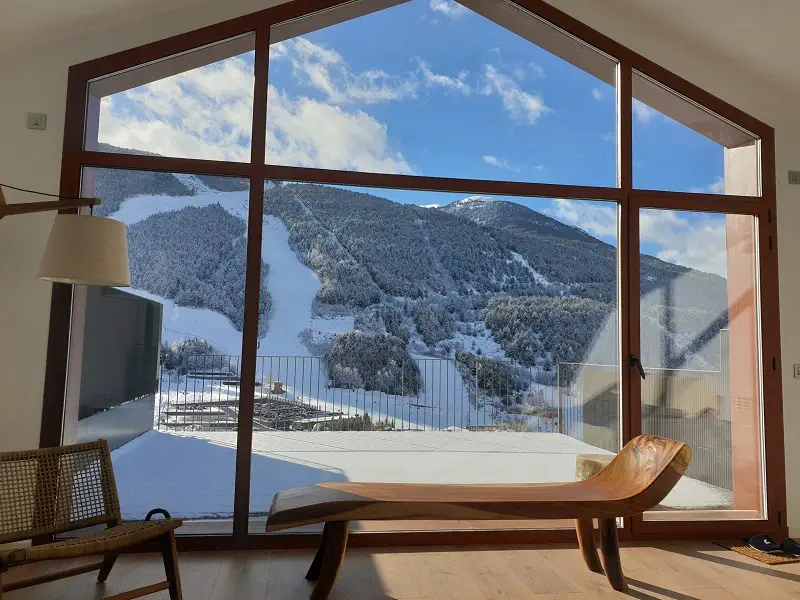
Seamless guest experience at KOKONO Andorra Vacation Rentals & Holiday Homes , and their Ski Chalet in El Tarter , AD.
Hotels can learn a great deal from how AirBnB engages customers . The company understands that experience is the primary driver of customer impression . Its purchase of Trip4Real enabled the company to combine its primary business – apartments and rooms for rent around the world – with perfectly complementary experiential activities, which customers can book directly all within the AirBnB app or via the company’s website.
The focus on experience runs through everything AirBnB does. Even their slogan communicates it: “Belong everywhere” . The implicit message is that not only with AirBnB can you stay anywhere in the world, but they allow you to fully immerse yourself in any country, culture, way of life. In other words, you can live an unforgettable experience.
AirBnB also promotes easy, convenient customer service access throughout the user interface. Guests can contact their accommodation hosts easily before, during and after their stay. This human touch elevates the guest experience.
The review system is also an important feature, helping entrench bonds between host and guest and, by extension, generating a positive impression of AirBnB for making it all possible. All in all, what it adds up to is a feeling of community, rather than a generic transactional system of booking and paying through a corporate online interface.
Maximize Your Hotel Revenue
Uncover the hidden revenue potential of your hotel or resort.

Tapping Into the Top Trends in Hospitality for 2022 and 2023
The changes to the hospitality industry may understandably seem overwhelming at times, given how broad they are and the speed with which they are taking place. However, with the right approach , hospitality managers can make the requisite changes to operations in order to take full advantage for commercial success. What is clear is that it will be the proactive managers and businesses, open to and embracing of change, with an intuitive understanding of how these hospitality trends represent unprecedented opportunities for business growth, who stand to benefit the most.
These 2022 and 2023 trends are driven by demographic movements, advancement in hospitality technology, and the importance of the mentality and approach from upper management. By designing a new, broad strategy that encompasses all aspects of hospitality for the modern market, and a willingness to evolve beyond traditional methods whose effectiveness is on the wane, properties can chart a robust, successful path forward. As a hotel management company , we have seen that failing to do so, and continuing by “sticking with what we know”, hospitality businesses may run a serious risk of falling behind their competitors, which can quickly transform into an existential threat.
Subscribe Latest Articles
Share This Story, Choose Your Platform!
About the author:.
Related Posts

Top Revenue Management Strategies for Hotels
What is hotel management, hotel budget plan: are you ready for 2024, what does a hotel management company do.

Six hospitality industry trends for 2023 and beyond

Having worked in the hospitality business for a long time, I feel we often underappreciate quite how resilient – and adaptive – this industry is.
In just the past couple of decades we have seen the hotel distribution model upended by the Online Travel Agents (OTAs); a major competitor arrive in the shape of Airbnb (and its emulators); and then a global pandemic which forced hotels in many key markets to cease trading almost overnight, and for what turned out to be an extended period.
And yet the hospitality industry keeps on rolling; adapting to new realities and consistently treating trends as opportunities. Amid a backdrop of strong hotel development pipelines in many regions, I have selected a few of the key hospitality trends to be aware of, while also looking at how hoteliers are responding.
1. Welcoming the working nomad
With major employers like PwC embracing hybrid working models, and others such as Airbnb committing to work-from-anywhere policies, there is a huge opportunity for the travel industry – and especially hospitality operators – to embrace this new generation of digital nomad remote workers who combine employment with international travel.
While accepting that there are many jobs which cannot be done remotely, the knowledge and services economy is less restrictive in this area, especially given the exponential rise in use of videoconferencing and collaborative working applications which was spurred by the constraints of lockdown.
For hotel operators, responding to this opportunity is about much more than just installing good Wi-Fi. There has been a sea change in attitudes, too: these new generation remote workers are interested in community, in being among like-minded peers, and in enjoying a better balanced life. At the same time, when they are working to a deadline they do not necessarily want to be surrounded by vacationers.
It means the age of the bland and forbidding hotel business centre is over. I expect to see funkier co-working spaces established; also suites being reconfigured to include a desk/office setup as well as converting to a functional meeting space when required.
At the same time, I see a huge opportunity for travel destinations to create bespoke marketing programmes to attract working nomads – ideally with tourism boards and hospitality companies working hand-in-hand to amplify the message as well as ensuring that promises are credible and can be delivered on the ground.
2. The rise and rise of wellness tourism
As a hospitality consultant, I get more calls from hotels looking to reposition into health and wellness tourism than any other trend. And no wonder – this market is booming.
However, hotels need to understand that such a repositioning may not be as simple as it seems; nor is it without risk. Much depends on location: given that most hotels cannot afford to have full-time medical and wellness experts on the payroll, are such professionals available close by? Also, several brands are already operating successfully in this sphere, so it is important to check the local competitive set before making a significant financial commitment.
Often, it may be better to look at smaller changes which can appeal to health-conscious guests without breaking the bank – something I call ‘light wellness’. Putting healthier choices in the minibar is a tiny gesture that can create a warm glow around your brand. In addition, it is increasingly common now to offer pillow and mattress menus; but why not go one step further by introducing sleep and wake-up rituals aligned to circadian rhythm cycles?
My message is that you do not necessarily have to open a bespoke vegan restaurant, or spend millions renovating your spa, to be thought of as a wellness-conscious hotel. That said, what you do spend should pay back, given that data shows health-conscious guests tend to be bigger spenders than average. This can be explained by the fact that they will happily pay for things like yoga sessions and personal trainers, as well as choosing the in-house F&B options because they trust them to produce healthier cooking instead of untried local competitors.
3. Embracing technology in spa and wellness
We are now much more engaged with our personal health and wellness; a trend which has been accelerated by a combination of the pandemic and the explosion in wearable fitness technology.
For the spa and wellness industry, this offers the promise of both creating an opportunity and nullifying a threat simultaneously.
How? Because new technologies like hyperbaric chambers, cryotherapy and the like are more demonstrably effective than many ‘traditional’ spa rituals and treatments. At the same time, working with these scientifically-proven treatments can also create fewer but more interesting and better paid spa and wellness roles; something that is essential for a segment which is struggling to attract workers amid the wider ‘war for talent’ in hospitality.
4. Deploying smart technology in hotels
The hotel industry has an unbalanced relationship with technology. We tend not to be pioneers in technological development, choosing instead to take on applications developed for the commercial real estate sector, airports and the home, then look at how they can be integrated into so-called smart hotels.
But the hotel reception is not the same as an airport check-in – the need for a warmer welcome and a degree of personalisation is much greater in a hotel setting. If I am your guest, why not give me the option to check-in from a smartphone app while I am still in my taxi heading from the airport? In that way I know there is a room waiting for me, and when I arrive I can head straight up to it without delay.
Crucially, though, if I wish for some human interaction there are employees who have been liberated from behind the reception desk and are in the lobby to greet me, answer my questions and give me tips on the best places to go for food, drinks or sightseeing. As a guest, it immediately makes me feel that the hotel is well integrated into its surrounding community.
This kind of customer-facing role requires excellent soft skills (as well as an encyclopedic knowledge of the destination) and is thus more rewarding both professionally and potentially in terms of remuneration. If you are a ‘people person’ it is a role you can enjoy and make your own – and these are exactly the sort of jobs that we need to offer as an industry if we want to attract and retain the talent we need.
5. Marketing gets ‘transformational’
We often talk about hospitality being part of the wider ‘Experience Economy’, which was a term coined by Pine & Gilmore just before the turn of the millennium. More recently, the same authors have developed the notion of the ‘Transformation Economy’, where experiences are elevated from mere enjoyment to actual personal transformation.
What does this mean for hospitality marketing? I think we will see a shift in messaging to amplify this notion of transformation through travel experiences, and particularly around health and wellness. Messaging will also become even more personalised – down to a granular level – especially in the luxury segment. The advantage with digitalisation is that it makes such moves easier to pull off.
The message will thus evolve to something like “I see that you are traveling because you are trying to change something in your life. We can be part of that journey by being the place where you sleep, where you look after your health and fitness, or by becoming your place of work while you explore how your career can move forwards”.
One of the brands already doing this successfully is Equinox, which began in fitness but has now opened what it calls “the fittest hotel on Earth” in New York’s ultra-trendy Hudson Yards. The promise is that a stay there will help you on your personal journey of being healthier, more focused and higher performing. It turns the transformation economy from theory to real-world practice.
6. Can the hotel ‘brand explosion’ last?
While the other trends I have highlighted can primarily be seen as opportunities rather than risks, this sixth and final one is perhaps a little more open to debate. It concerns the fragmentation of the hotel sector into a plethora of sub-segments, each with their own stable of competing brands.
While choice is generally a good thing for a consumer, has this process gone too far in the hotel business? Are customers becoming more confused than inspired by being faced with so many brands? Will they feel that once independent brands which are now part of a multinational group can still deliver authentic experiences?
I personally think that such concerns are valid, and that in time we may see some rationalisation as the larger operators focus on one brand in lifestyle, one in boutique, etc.
To finish, these are just six hospitality trends I have chosen to highlight today. There are plenty more items on the hospitality leader’s strategic agenda; some of which – such as social responsibility – may ultimately prove more impactful than those mentioned above. And the red thread which runs through most if not all of them is the hotel industry’s ongoing battle to attract and retain staff.
Much of what I have talked about is centred on delivering transformational, ultra-personalised experiences to guests. But how can a hotel do this successfully if its frontline workforce is changing every six months?
As an industry, we need to address the way we engage and excite young people to work in hospitality; deploy technology to give us more freedom to invest in people and give them roles that captivate both them and their guests; and reclaim that notion of personalised, human-to-human interactions which Airbnb used to such great effect when it first emerged as a challenger to the traditional hotel business.
If the hotel industry can pull this off, it will deliver exceptional growth, because this is the way that guest demand is going.
Mariana Palmeiro is a consultant to the global hospitality industry, specialising in the spa, wellness and health segments, and Visiting Faculty – Business Trends in Luxury – at Glion Institute of Higher Education.
- Property Management System
- Channel Manager
- Booking Engine
- Marketplace
- Revenue Management
- Cloudbeds Payments
- Cloudbeds Amplify New!
- Whistle for Cloudbeds New!
- B&Bs and Inns
- Hotel Groups
- Vacation Rentals
- Channel Connections
- Ambassador Partner Program
- Cloudbeds Horizon
- Become a Partner
- Case Studies
- Resource Center
- Guides & Reports
- Calculators
- What to Expect
- Customer Success
- Knowledge Base
- Product Updates
- Cloudbeds University
- Government Compliance
- Company News
- Meet the Team
- Careers We're Hiring!
- Become an Ambassador
- Event Schedule
- Cloudbeds Amplify
- Whistle for Cloudbeds

6 trends shaping the travel landscape
In last year’s report, we discussed five emerging trends: value-driven decisions, the virtual front desk, hybrid hospitality, new search habits, and the rise of experiential travel. This year, we anticipate these trends to continue, along with six newer developments poised to reshape the travel landscape.
These trends include a resurgence in lagging market segments, an uptick in inflation-busting travel hacks, and new spins on experiential travel. We also anticipate continued growth in the short-term rental sector (despite rumors to the contrary), new efficiencies driven by generative AI, and growing demand for new skills among next-generation hoteliers.
While the economy seems poised to dodge a recession again this year, that doesn’t mean it will be smooth sailing for hotels. As we observed in the previous section, travel patterns are changing, travelers are more price-sensitive, and demand may soften. Under any market conditions, it’s the hoteliers who monitor the trends and data closely, act quickly to seize opportunities, and offer a distinctive guest experience that will outperform the market.
The comeback: Straggling segments catch up
Since the pandemic, leisure demand has been so strong it has been easy to overlook other market segments that have been slower to rebound. However, with growth in leisure travel now at a virtual standstill, all bets are on a triple threat of market segments picking up the slack: international, corporate, and group travel.
Here come the big spenders
In 2023, international tourism reached almost 90% of pre-pandemic levels , setting the stage for a full recovery in 2024. Inbound tourists tend to stay longer and spend as much as 90% more than domestic travelers, according to Aoife Roche of STR, speaking at Cloudbeds’ inaugural Passport UserCon . She also noted that strong demand from Asia Pacific is likely to fill any gaps in other regions.
Back to business travel
After stalling and sputtering in recent years, global business travel is forecasted to zoom past pre-pandemic spending levels in 2024. Some of the recovery will be fueled by rate growth, whereas travel volume may still lag behind 2019 numbers. China is expected to lead the charge, reclaiming its position as the No. 1 outbound business travel market in the world.
The more the merrier
Group travel made strong strides in 2023, and the momentum is anticipated to continue through 2024. This includes not only conference travel and small regional meetings but also team-building events, social groups, and group trips to sporting events like the Olympic Games in Paris. However, groups might not hit their usual haunts. Many conferences and events have shifted from large, urban cities to smaller, secondary markets, according to Hilton .
What does this mean for independent properties?
Chasing demand is about finding new business opportunities, and these market segments offer valuable ways to strengthen hotel performance. International travelers are generally less price-sensitive than domestic travelers, and they tend to stick around for a while. As our data indicates, more business travelers are working remotely and combining leisure activities on trips, increasing the average length of stay. And groups often book well in advance, providing a solid base upon which to build higher-rated business.
Even properties that don’t host a lot of groups or business travelers can benefit from the compression they bring to a region. The local convention & visitors bureau (CVB) can keep hoteliers up to date on upcoming events and conferences , providing advanced notice of opportunities to increase rates.
Hotels that cater to diverse market segments enjoy stronger year-round demand and are better positioned to weather a softening in one or more segments. In 2024, the time may be ripe to start spreading the love.
- In 2024, hotel rates are forecasted to rise in most locations around the world and by as much as 17.5% in some cities. ( Amex GBT )
- In the next three to five years, China is set to become the world’s biggest outbound travel and tourism market. ( WTTC )
- 62% of business travelers more frequently blend business and personal travel today than in 2019. ( GBTA )
Inflation who? Travelers trade up
Inflation is heavy on the minds of consumers these days. Nevertheless, surveys indicate that people are unwilling to sacrifice travel or compromise on their tastes. Instead, they’re finding creative ways to trade up travel experiences.
Aspirational luxury
To experience a richer lifestyle on the road than at home, travelers are employing money-saving hacks such as traveling off-peak, during the week, and closer to home. Some are choosing destinations where the cost of living is relatively low, whereas others are buying a day pass or enjoying drinks at a luxury hotel (and posting proof on Instagram) while staying at a more affordable property.
Close enough: The quest for dupes
Popularized on TikTok, a dupe refers to a more affordable alternative to a popular but pricey product. Not only are dupe destinations less expensive, they also tend to be less crowded and less predictable. For travelers, this might mean choosing Quebec City over Paris or Liverpool over London. Already, one in three travelers has booked a dupe, according to Expedia .
Postponing the payment, not the trip
“Buy Now, Pay Later” (BNPL) is the fastest-growing form of payment in the U.S. In travel, service providers like Affirm and Afterpay have partnered with Booking.com, Expedia, Airbnb, and select hotel companies to offer BNPL options, and the list is growing fast. In a survey from Atmosphere Research , four in 10 travelers said that a BNPL option had made it possible for them to take a trip.
While travelers may seek bargains in 2024, hotels still have bills to pay and staff to employ. Meeting demand for deals will require finding imaginative ways to make travelers feel they are paying less without slashing room rates.
Rather than being on sale all the time, hotels can protect rates by restricting discounts to times of low demand and targeting desirable business like advanced bookings and extended stays throughout the year. Reduced increments for premium rooms and suites can entice aspirational travelers to trade up, while charging premiums for conveniences like flexible cancellation, early check-in, and late check-out can boost total revenue.
Often it’s the little extras and thoughtful touches that guests remember most, especially when on a tight budget. Throwing in value-adds such as an upgrade, free parking, welcome cocktail, or room amenities can wow guests without costing the hotel a lot of money. Additionally, offering a BNPL option will attract more bookings, especially if the economy slows down.
- Globally, 81% of travelers plan to travel the same or more in 2024 compared to 2023. ( Skyscanner )
- 64% of travelers aim to cut other areas of their personal spending to prioritize leisure travel. ( Forbes )
- 79% of consumers say they are likely to use BNPL service for hotel stays. ( Uplift )
The experience IS the destination
According to the old adage, it’s about the journey, not the destination, but in 2024, it’s all about the experience. After years of post-pandemic binge-buying, consumers are moving on from collecting stuff to collecting experiences. Here are three standout trends we’re observing.
Tour tourism
In 2023, world tours by Taylor Swift and Beyoncé demonstrated the power of tour tourism, bringing hotels significant bumps in revenue wherever they touched down. Hotels can expect an encore in 2024, with more shows from Tay Tay as well as Coldplay, Madonna, Pink, and other headliners hitting the global tour circuit. Almost 70% of travelers say they are more likely than ever to travel to a concert outside their hometown, according to Expedia .
Memorable meals
This year, travelers are showing an insatiable appetite for culinary tourism. According to Skyscanner , 47% of U.S. travelers have booked a destination purely to visit a specific restaurant. For some, this may be experiencing Noma in Copenhagen, reputedly the world’s best restaurant, before it closes at year-end. For others, it may be heading to steamed dumpling stalls in Nepal, produce markets in Vietnam, or Cajun food trucks in New Orleans.
Splashy trips
After last year’s record-breaking temperatures, more people will retreat to water destinations this year. But this is about more than lounging on floaties in the hotel pool. Activities on the roster include wild swims with dolphins in Mauritius, eco-diving among the mangrove forests in Yucatan, winter swims in Norway and Estonia, and island-hopping by front crawl in the Adriatic.
To tap into the experience trend, hotels should promote their proximity to popular activities, whether it’s a concert venue, popular restaurant, or unique attraction. Nearly two-thirds of travelers say they often or always book their hotel based on access to local experiences, according to Hilton .
Another effective tactic is to package overnight stays with tickets to a show, a dinner voucher for a local restaurant, or even concert swag. During the Eras Tour, Loews Hotels enticed Swifties to its properties by offering Swift-inspired cocktails, playlists, bracelet-making lessons, and photo backdrops.
By signing up for notifications of upcoming concerts, sporting events, and festivals, hoteliers will receive a heads-up to raise rates and implement stay restrictions when demand is expected to spike. Properties can also utilize business intelligence and revenue management systems integrated with their PMS to track events and update rates in real-time.
At the same time, operators should be careful not to neglect the most important experience of all: the guest experience. Unique, localized experiences are a major reason why travelers choose independent hotels over brands.
- 34% of U.S. travelers plan to attend a gig, music concert, or festival in 2024, including 50% of 25-to-34-year-olds. ( Skyscanner )
- During the first 53 concert nights of Taylor Swift’s 2023 Eras Tour, U.S. hotels pulled in an estimated $208 million in revenue. ( STR )
- 52% of travelers are keen to book a surprise trip where everything down to the destination is unknown until arrival. ( Booking.com )
Airbnbust? Long-term obstacles for short-term rentals
After substantial growth during the pandemic, the short-term rentals (STR) sector is experiencing serious pushback. Is this the beginning of the end?
Traditionally, a major draw for private rentals has been value: more space for less money. However, the pricing gap with hotels has narrowed, and travelers have been grumbling about misleading pricing tactics . Airbnb, in particular, has been assailed for advertising low prices only to produce sticker shock when fees are tacked on at checkout.
At the same time, governments have been cracking down on STR operators, capping the number of licenses issued and the number of days properties can be rented out per year. New York City is the latest city to throw down the gauntlet, with strict new regulations that bar hosts from renting out an entire home and require them to be present during the guests’ stay.
As a result of all this activity, whispers of an apocalyptic “Airbnbust” have spread online . Upon closer inspection, however, it appears that reports of the death of short-term rentals have been greatly exaggerated.
While some secondary markets have experienced a glut in supply, overall demand has increased, while hotel rates climbed faster than rental rates last year . Reporting last year on the company’s most profitable third quarter in history, CEO Brian Chesky remarked, “I think we’re only scratching the surface.” The company also introduced transparency measures to display the total price, including fees, at the beginning of listings.
- Globally, short-term rentals represent about 14.2% of the accommodation sector. ( Skift )
- Global revenue per available rental (RevPAR) in the STR sector grew by 5.7% in the first six months of 2023. ( TravelPulse )
- Demand for short-term rentals in the U.S. grew by 7.6% in August 2023 over the previous year, while hotel demand declined by 1.3%. ( CBRE )
Generative AI: Trusted travel advisor and 24/7 intern
2023 was the year generative artificial intelligence (AI) went mainstream. Since launching in late 2022, ChatGPT has amassed more than 180 million users worldwide. Not to be outdone, Google launched Gemini in December, an AI chatbot that comprehends and generates not only text but also audio, video, and images.
What’s truly exciting about AI chatbots is their potential as a trusted travel advisor, providing personalized information and recommendations on everything from flight routes to accommodation choices based on the traveler’s budget and preferences, as well as acting as a translator, tour guide, and concierge. For example, Navan has launched Hotel Concierge by Ava, an automated virtual assistant that provides recommendations tailored to the traveler’s individual preferences and booking patterns.
However, one of the most significant impacts of AI is perhaps its potential to revolutionize the operational efficiency of independent hotels. Technological advancements have democratized access to AI tools, with forward-thinking tech providers creating innovative products with advanced AI and machine learning. This shift is fostering a new era where hotel operators, regardless of size, can harness AI to streamline operations and accelerate efficiencies.
In 2024, we can expect AI to be meaningfully integrated into technology solutions to improve day-to-day operations for lodging businesses. From guest communication to revenue management and digital marketing, hoteliers will be able to use AI to enhance productivity and automate workflows, leaving more time for strategic decision-making.
- 48% of travelers now trust AI to plan their trips. ( Booking.com )
- 42% of travel executives agree that AI is most useful for using data to provide more personalized offerings. ( Skift )
- An estimated 60% of generative AI skeptics will use and value it in 2024, whether they realize it or not. ( Forrester )
Adapt or go obsolete: Next-gen hoteliers upgrade their skills
The nature of hospitality is changing, and a driving force is technology. Travelers are using more technology to plan trips and experience destinations, and hoteliers are using more technology to operate their properties and serve their guests.
Today, technology automates an increasing array of tasks for hotel employees, from taking reservations, to updating rates and availability, to checking guests in and out. While humans are still running the show, roles and responsibilities are evolving. From front desk staff to general managers, the challenge today is to find one’s place in a tech-centric world.
Growing demand for diverse skills
The irony of it all? The range of skills required of hotel staff has expanded, not contracted. Technology doesn’t replace the skills employees have always needed to be successful – hard skills like technical aptitude and soft skills like empathy, creativity, and teamwork. But it also demands an array of new skills.
Today’s hospitality leaders must be more technical, able to operate dozens of applications used in the hotel environment today. They must be more analytical, able to extract meaning and insights from massive amounts of data. And they must be more strategic, finding the ideal balance between technology and human touch that keeps guests and teams happy and loyal.
There is also increasing demand for knowledge and skills in emerging tech fields such as generative AI, cloud computing, robotics, cybersecurity, internet of things, and virtual reality.
- An estimated 42% of business tasks will be automated by 2027. ( World Economic Forum )
- Globally, 91% of hotels use a PMS, 64% have a booking engine, and 33% have a channel manager. ( Skift )
- 100% of hoteliers say their IT budgets will either increase or hold steady in 2024. ( Hospitality Technology )
It’s time to rewrite the rules
When travel behavior shifts, hoteliers must change how they do business if they wish to stay competitive. In 2024, this means letting go of old habits and embracing new ways of doing things – in marketing, revenue management, operations, guest experience, and across the organization.
The backbone of a successful hospitality business is modern technology. No longer can independent hoteliers allow themselves to be held back by manual processes and outdated software while competitors down the street leverage the speed and efficiency of automation and cloud technology.
Nor can hoteliers rely on continued guest satisfaction and loyalty without unified data to understand and cater to guest preferences. To stay competitive, hotels need an integrated hospitality platform that is built to serve their unique needs and is scalable as their business grows and evolves.
Over the past decade, Cloudbeds has evolved from a scrappy startup to an industry leader by rewriting the rules. Today, we encourage our hotel partners to follow a similar path. More than ever, our team is committed to providing best-of-class technology to empower hoteliers to chase demand and elevate their businesses through the art of hospitality.
State of Independent Lodging Report
- First name *
- Last name *
- Property Name *
- Property Type * Property type* Hotel Bed and Breakfast Hostel Apartment Groups Vacation Homes Alternative Accommodations
- How many listings do you have?
- How many Addresses does your business have?
- Language for your demo * English
- Increase revenue
- Delight guests
- Streamline operations
- Property Name
- Property Type Property type* Hotel Bed and Breakfast Hostel Apartment Groups Vacation Homes Alternative Accommodations
- Postal Code
- Language for your demo English Spanish Portuguese Franch Vietnamese Japanese Thai Italian
- Cloudbeds Hospitality Platform
- Cloudbeds Websites
- Ambassador Program
- Terms of Service
- Privacy Policy
- Data Security
- Cookie Policy
- Accessibility

12 key trends shaping the hospitality industry in 2024
In an era defined by rapid technological advancements and shifting consumer preferences, the hospitality industry stands at the forefront of innovation and adaptation. As we step into 2024, the landscape continues to evolve, presenting both challenges and opportunities for businesses in the sector. Understanding and harnessing these emerging trends will be pivotal in shaping the future of hospitality. Here are the trends we’re reading about that are key priorities for hospitality businesses in 2024:

1. Sustainability as a priority
With increasing global awareness of environmental issues, sustainability has transitioned from a buzzword to a core principle in the hospitality industry. Guests are actively seeking eco-friendly accommodations and experiences. In 2024, sustainability will continue to be a defining factor in consumer choices and brand loyalty.
Dr Newman, Chief Sustainability Officer for EarthCheck (previously Banyan Tree Group’s Chief Sustainability Officer) says, “There’s a willingness for many companies to engage with ESG (Environmental, Social, and Governance) issues, but many simply don’t know where to start.”
Many hotels are responding by gaining more knowledge and understanding around adopting green practices, from energy-efficient buildings and waste reduction initiatives to locally sourced products and sustainable food options. Looking for more sustainability ideas? Check out the EarthCheck courses on Typsy here.
2. Cultural diversity and inclusivity
3. health and wellness-centric offerings.
The pandemic has elevated health consciousness, propelling the demand for wellness-focused travel experiences. According to a survey by Booking.com, over 70% of travelers prioritize wellness on their trips. In 2024, hotels and resorts will be expected to expand their wellness amenities, incorporating yoga studios, meditation spaces, healthier menu options, and fitness programs to cater to this growing trend.
.png?width=600&name=Typsy%20%20We%20teach%20hospitality%20to%20the%20world%20%20typsy.com%20blog%20banner%20_%20(1).png)
Learning with Typsy is practical, effective, and fun! And best of all, you can access Typsy's 1500+ lessons when it suits you. Learn your way - starting today.
4. Rise of remote work and bleisure travel
The concept of work has transformed significantly, with remote work becoming more prevalent. This shift has given rise to ' b leisure ' travel – a blend of business and leisure trips. Hotels are adapting their amenities and services to accommodate this hybrid trend. Specialized packages ca tering to remote workers, offering co-working spaces, high-speed internet, and unique leisure experiences, are gaining traction.
5. Personalized experiences through AI and big data with advanced analytics
The use of advanced analytics to personalize guest experiences is on the rise. According to a report by Accenture, 83% of consumers are willing to share their data for a more personalized experience. Hospitality businesses are leverag ing this d ata to anticip ate guest needs, preferences, and even emotional states, creating hyper-personalized services that resonate with individual travelers.
6. Rise of experience-driven lodging
The shift from 'staying' to 'experiencing' has transformed the lodging landscape. Unique accommodations such as treehouses, glamping sites, and boutique stays are gaining popularity. Statista reports a 42% increase in demand for unique accommodations . As travelers seek distinctive and memorable experiences, hotels are diversifying their offerings to cater to this demand, emphasizing local culture and authenticity.
7. Focus on local talent development
In many regions, a shift towards investing in local talent development programs to mitigate skill gaps will be seen. Ray Pulungan, CEO of Indonesian company, PINTAR says he is seeing an increase in requests for talent development and placement solutions to support the increasing need for workers in the hospitality industry.
Organizations including VTIC have been running programs to support local talent development across tourism regions in Victoria, Australia to help address the skills gap. Hospitality businesses will look to collaborate with educational institutions, vocational schools, or online training programs to nurture and upskill local talent, reducing reliance on overseas recruitment for certain roles.
8. Strategic global partnerships for talent acquisition
Hospitality businesses will also look further afield and seek out st rategic partnerships or alliances with international recruitment agencies, educational institutions, or HR firms specialized in sourcing global talent. Collaborations with entities abroad may facilitate smoother and more effective recruitment processes while ensuring compliance with changing regulations. Sometimes visa restrictions impact the ease of international recruitment, however, Governments may implement or revise immigration policies tha t impa ct the recruitment of international staff. Changes in visa regulations, work permits, or immigration laws might influence how easily hospitality businesses can source talent from abroad.
9. Focus on retention and employee experience
Retaining skilled employees will be a priority. Hospitality companies will invest in improving the overall employee experience, offering competitive benefits, career development and training opportunities , recognition programs, and fostering a positive work culture. Typsy CEO, Jon Plowright says there is increased interest in blending online training and face-to-face learning as an efficient way to upskill teams at scale . Moving forward, the emphasis on creating efficiencies, where it makes sense, and enhancing convenience will persist. Engaged and satisfied employees are more likely to deliver superior guest experiences, impacting the overall success of the business.
10. Contactless technology and seamless operations
The aftermath of the pandemic expedited the adoption of contactless technologies and hospitality management software . QR codes, mobile check-ins, and digital keys have become comm on pl ace for guests , as have re staurant boo king tec hnologies that not only create a great expe rience for the cus tomer bu t can also h el p drive more revenue f or businesses. A great example of optim izing technolog y is from Tano shi Grou p wh ere they s aw 35 % more pe ak covers, doubled their eve nt bookings, and saw a 30% reduc ti on in group no- shows by using reservation management software, ResDiary. Investments in te ch in fr astructu re for smoother o perat ions, alon g with th e incorporation of IoT de vices for smar t ro oms, will remain a pr iority.

11. Cryptocurrency and blockchain integration
The adoption of cryptocurrencies and blockchain technology is gaining momentum in the hospitality sector. According to Statista, the global blockchain market in hospitality is projected to grow to over $7.6 billion by 2024. Blockchain offers secure transactions, loyalty programs, and enhanced guest data protection, while cryptocurrencies provide an alternative payment method catering to tech-savvy travelers.
12. Flexible booking options and subscription services
The industry is witnessing a shift towards flexible booking options and subscription-based models. Guests seek more control over their reservations, with options for cancellations and modifications. Subscription services for frequent travelers, offering exclusive perks and discounts, are gaining popularity, fostering long-term relationships with customers.
The hospitality sector is a dynamic ecosystem continually adapting to meet the evolving needs and expectations of its patrons. As we say goodbye to 2023, the industry faces a multitude of transformative trends, each playing a crucial role in shaping its trajectory.
Embracing these trends isn't merely a choice but a necessity for businesses aiming to thrive in this dynamic landscape. By prioritizing personalization, sustainability, technology integration, staff training and development, flexibility, and innovative guest experiences, hospitality brands can position themselves at the forefront of this evolution, catering to the evolving needs and desires of their guests while staying ahead as an employer of choice in a competitive market.
Adaptability and a customer-centric approach will be the cornerstone for success, propelling the industry towards a future defined by unparalleled experiences and heightened guest satisfaction.
An exciting year awaits us in 2024!
You might also like
Topics: Hospitality insights , Hospitality trends
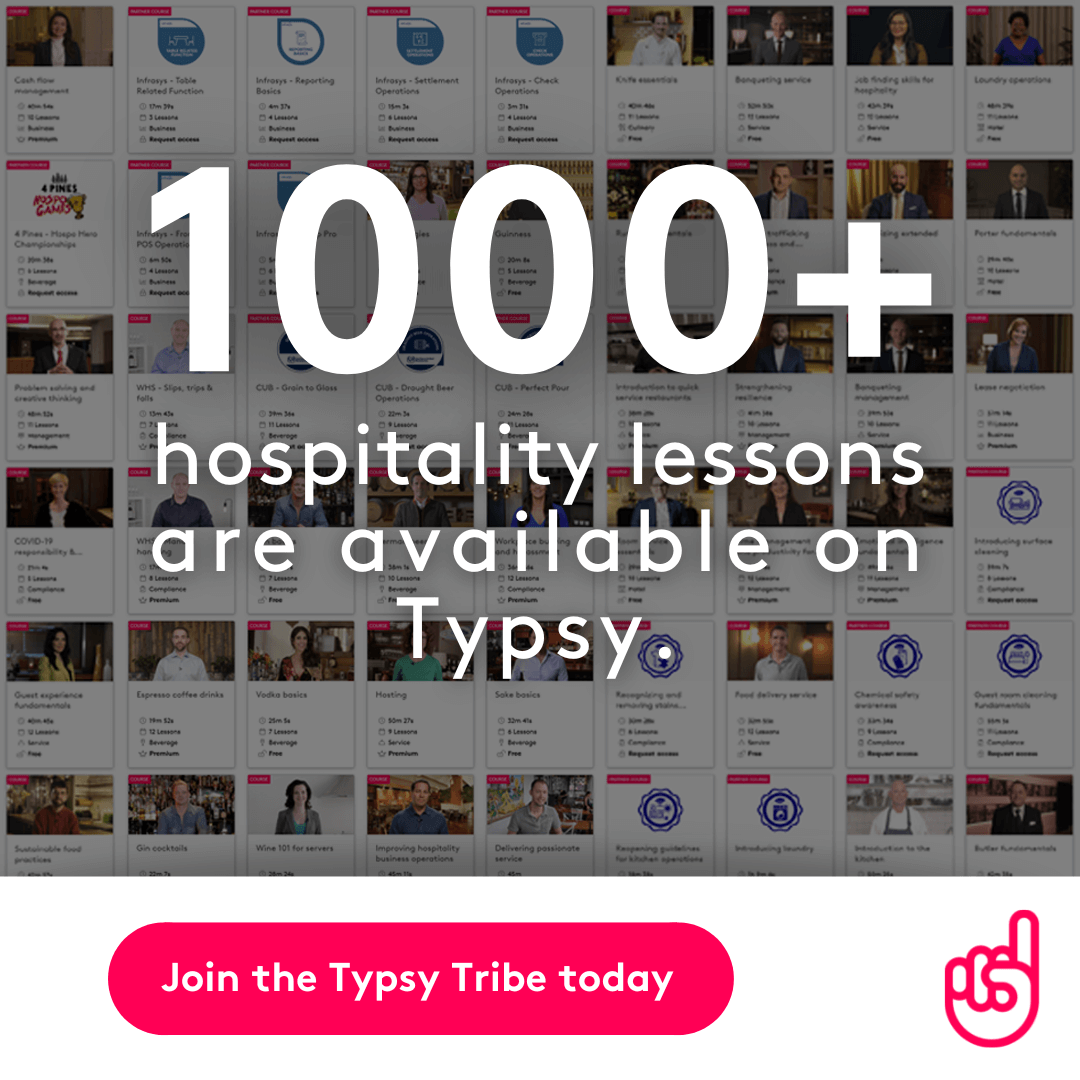
About Typsy
Browse by category
- Case studies (7)
- COVID-19 (41)
- cybersecurity (1)
- Expert Q&A (10)
- Health and wellbeing (49)
- Hospitality career tips (108)
- hospitality courses (1)
- Hospitality insights (158)
- Hospitality managers (314)
- Hospitality marketing (134)
- Hospitality operations (109)
- hospitality recruitment (1)
- hospitality skills shortage (8)
- Hospitality staff (188)
- hospitality technology (1)
- Hospitality training (103)
- Hospitality trends (11)
- Hotels (259)
- onboarding (1)
- online hospitality training (2)
- Restaurants (292)
- Schools (23)
- Travel & tourism (4)
- Typsy updates (101)
Recent posts
Search this blog.
- There are no suggestions because the search field is empty.

Find the right Typsy plan for you
For job seekers, casual workers, university students, travelers and career builders, for businesses and teams of any size.
Hotel Design

Restaurant Design

Coffee shop Design
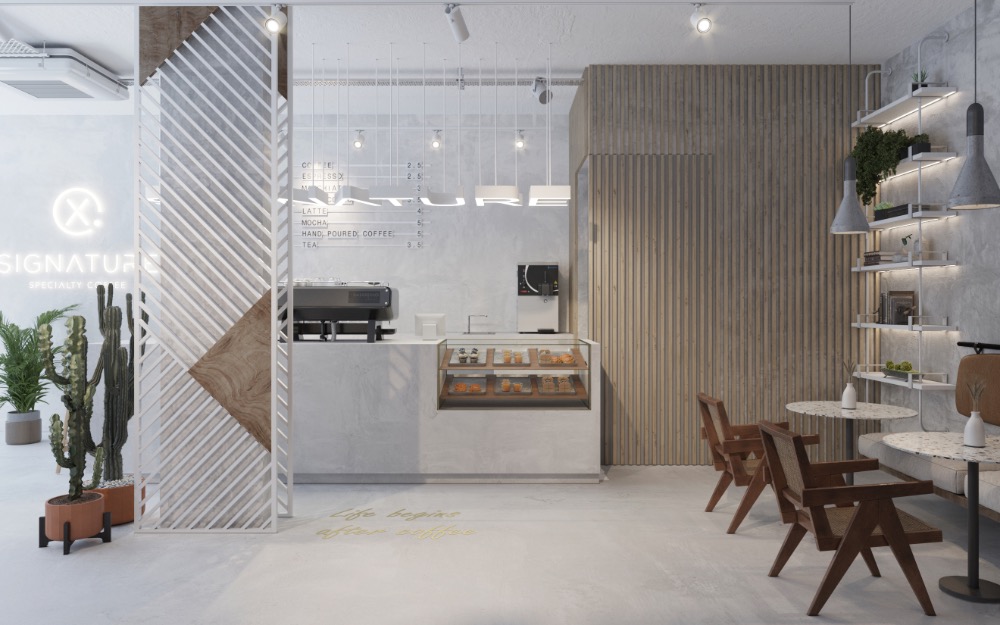
Residential Design

2024 Hospitality Trends: Shaping the Future of the Industry
09 September, 2023
Hospitality Trends
Hospitality Strategy
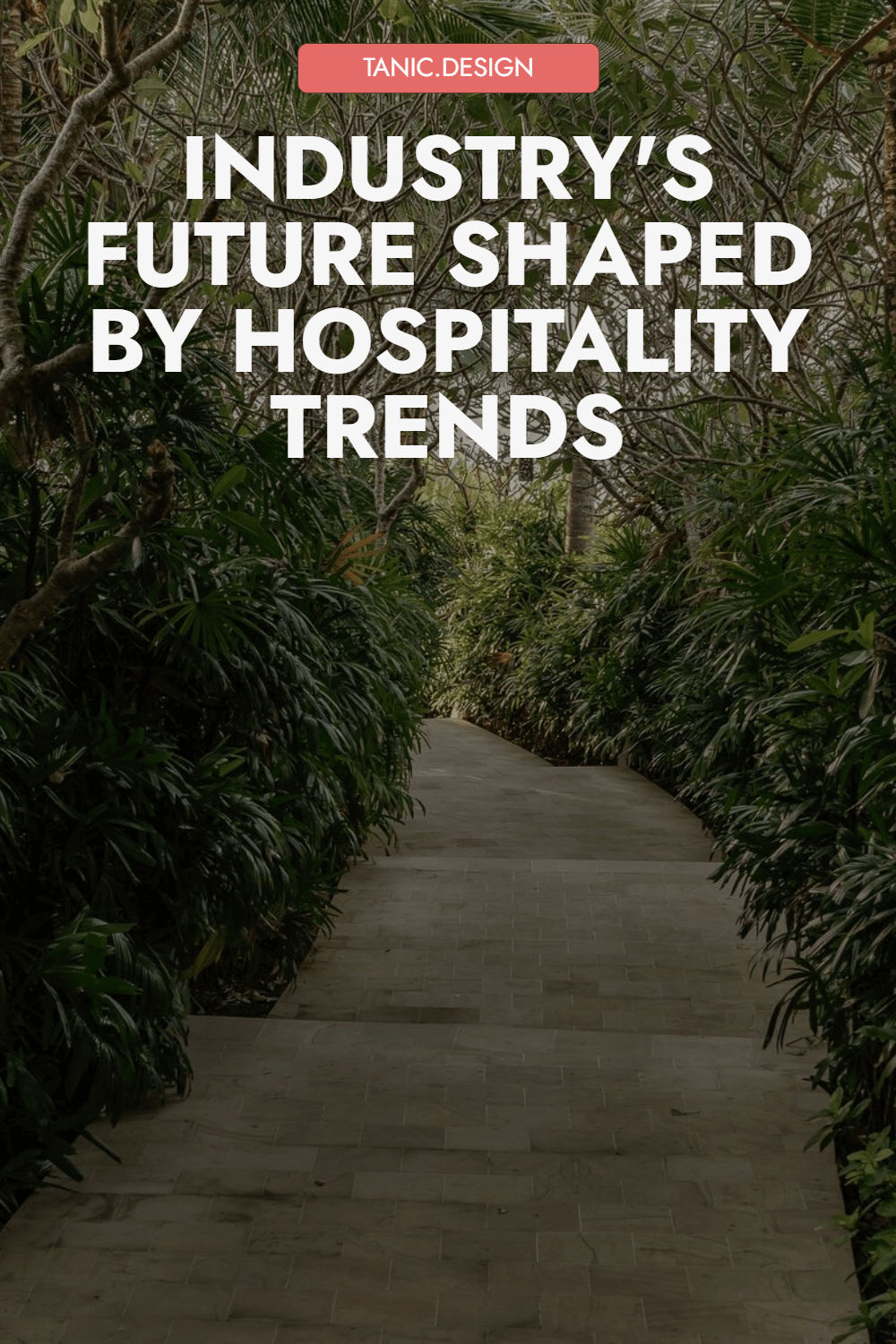
Table of contents
The rise of artificial intelligence in hospitality, benefits of ai-powered chatbots, advantages of virtual concierges, key points:, the role of augmented reality in hospitality, personalization in the digital age, the impact of voice technology: analyzing the integration of voice assistants and voice-activated devices in hotels and resorts, hospitality trends: the evolution of mobile technology, examining the role of automation and robotics in streamlining hotel operations., the rise of experiential travel: how immersive experiences and unique offerings are reshaping hospitality, the influence of social media, shaping guest preferences, driving bookings, the shift towards contactless services, the role of blockchain in hospitality, the importance of health and wellness, what is the future of the hospitality industry in 2024, what are some of the key trends in the hospitality industry, how will the pandemic impact the hospitality industry in the coming year, what role will technology play in the future of hospitality, how can hospitality businesses capitalize on emerging trends and opportunities, what are the key trends to watch in the hotel industry, how can hotels cater to the preferences of gen z travellers, how will food and beverage trends evolve in the hospitality industry, what are some important trends in the luxury hospitality sector, what new trends can we expect to see in the hospitality industry in 2024, wrapping up the future: a peek at tomorrow’s hospitality.
In recent years, the hospitality industry has experienced unprecedented growth and innovation. From advanced reservation systems to personalized guest experiences, technological advancements have played a crucial role in shaping the way hotels, resorts, and other establishments provide their services.
Looking ahead to 2024, it’s clear that the industry is poised for further evolution, driven by a series of emerging trends in the hospitality industry. This article aims to explore these trends, offering insights into how they will revolutionize the hospitality landscape by providing unmatched convenience for guests and enhancing operational efficiency for businesses.
Among the most notable trends is the adoption of artificial intelligence, with AI-powered chatbots leading the charge in customer service innovation. These sophisticated systems are set to become a staple in the hotel industry trends of 2024, offering real-time assistance and personalized recommendations to guests. Additionally, the focus on sustainability continues to gain momentum, with eco-conscious practices becoming a priority for travelers and hoteliers alike.
The hospitality trends of 2024 also include a shift towards more sustainable practices, as the industry seeks to align with the growing demand for eco-friendly travel options. This reflects a broader change in the hospitality industry, where the emphasis on environmental responsibility is becoming increasingly pronounced.
As we delve deeper into the trends and developments in the tourism and hospitality industry, it’s evident that the future holds exciting prospects. From hotel design trends that prioritize both aesthetics and functionality to hotel management trends that streamline operations, the industry is gearing up for a future where innovation is the norm.
The Rise of Artificial Intelligence in Hospitality: How AI-powered chatbots and virtual concierges are enhancing guest experiences
As we approach 2024, personalization emerges as the top trend transforming the hospitality industry. In the coming year, hotels, restaurants, and other hospitality businesses must prioritize tailored experiences to attract and retain customers, especially the coveted millennials and Gen Z demographics.
Leveraging artificial intelligence and big data analytics will be crucial for delivering unparalleled personalization. Hospitality companies can utilize AI-powered chatbots and virtual concierges to provide seamless, 24/7 support, handling everything from reservations to local experience recommendations based on individual preferences.
Moreover, self-service technologies like mobile check-in/out and digital room keys will allow guests to customize their stays according to their desired level of interaction. Simultaneously, hospitality brands must focus on partnering with local businesses to curate authentic culinary experiences and immersive activities that cater to the growing demand for unique, localized offerings.
In this ever-changing landscape, proactive hospitality businesses will update their property management and revenue management systems to better understand customer behavior and optimize pricing strategies. Sustainability, wellness amenities, and high-speed Wi-Fi will also be essential for meeting the expectations of modern travelers.
As we move into 2024, the hospitality sector must embrace personalization wholeheartedly. Those who successfully leverage AI, self-service solutions, localized experiences, and data-driven strategies will be poised to thrive in the new era of hospitality trends.
- Quick and efficient responses to guest inquiries
- 24/7 availability reduces waiting times
- Improved customer satisfaction levels
- Allows staff to focus on more complex tasks
- Personalized recommendations based on guest preferences
- Enhanced convenience through voice or text commands
- Continual improvement through machine learning algorithms
Embracing Sustainability: Exploring eco-friendly practices and green initiatives in the hospitality industry
The hospitality industry is undergoing a significant transformation, with sustainability emerging as one of the key trends in the hospitality industry. Hotels and resorts are actively adopting eco-friendly practices and green initiatives, setting a new standard for environmental responsibility.
- Recycling programs have become a cornerstone of sustainability efforts, with many hotels segregating waste into categories like paper, plastic, glass, and organic materials. This aligns with the current trends in hospitality industry 2024, where waste reduction is not just a practice but a guest expectation.
- In the realm of energy conservation, the industry is investing in technologies such as LED lighting, smart thermostats, and motion sensors, and eco-friendly comfort systems —hallmarks of the latest trends in the hospitality industry. These measures are in step with the emerging trends in the hotel industry, focusing on reducing the carbon footprint and enhancing energy efficiency.
- Water conservation efforts, including the installation of low-flow fixtures and rainwater harvesting systems, reflect the current trends in hospitality and tourism industry. These initiatives are crucial as the industry moves towards the future trends in tourism and hospitality industry, where resource management is paramount.
These sustainable practices are not only beneficial for the environment but also resonate with the eco-conscious traveler, a growing demographic according to hospitality and tourism trends. By prioritizing these eco-friendly initiatives, the hospitality industry is not just preparing for 2024 hospitality trends but is also shaping the future of the hotel industry.
By embracing sustainability, the industry is not only meeting the current trends in the hospitality industry but is also setting a precedent for the future trends in hotel industry. This commitment to eco-friendly practices ensures that the hospitality sector remains at the forefront of the trends in hospitality 2024, ready to welcome guests who value environmental stewardship as much as comfort and luxury.
The Role of Augmented Reality in Hospitality: How AR technology is transforming the way guests interact with their surroundings
Augmented Reality (AR) technology is revolutionizing the way guests interact with their surroundings in the hospitality industry. By overlaying digital information onto real-world settings, AR enhances the guest experience, making it more engaging and immersive.
With AR, hotels can provide interactive maps that guide guests around their properties, highlighting key amenities and attractions. This saves time and helps visitors navigate unfamiliar spaces effortlessly. Additionally, AR can offer virtual tours of rooms and facilities, allowing potential guests to preview their stay before committing to a booking.
By integrating AR into the hospitality experience, hotels can create a personalized and memorable visit for their guests. Whether it's showcasing informative historical facts about a landmark or offering interactive games within hotel premises, AR technology adds an extra layer of entertainment to enhance guest satisfaction.
Get your Strategic Hotel Design Checklist: 10 Must-Haves for Maximizing Guest Satisfaction and Revenue for FREE

See you inside!
Personalization in the Digital Age: Examining the use of data analytics and personalization to create tailored guest experiences
In the digital era of 2024, the hospitality industry is witnessing a paradigm shift, driven by data analytics and personalization. These emerging trends are revolutionizing guest experiences, with hotels harnessing the power of technology to offer unprecedented levels of customization.
Hotels are now at the forefront of the digital transformation, utilizing data analytics to understand and predict guest preferences. This trend in the hospitality industry allows for the creation of bespoke experiences, from the moment of booking to post-stay follow-up.
The future trends in the hospitality industry suggest that every interaction, every preference, and every feedback will be captured and analyzed. This trend enables hotels to offer room service 2024 style - where menus are curated based on dietary preferences, and activities are suggested based on past behavior.
As we look at the hospitality trends for 2024, it’s clear that personalization is not just a service but an expectation. Guests seek hospitality experiences that reflect their lifestyle and values, pushing hotels to adopt green initiatives and sustainable practices as part of their hospitality design trends.
The hospitality market trends indicate that the relationship between hotels and guests will extend beyond the physical stay. With AI and big data, hotels will maintain a connection with their guests, offering travel and hospitality trends insights and personalized offers to foster loyalty.
Voice technology is becoming a cornerstone of the hospitality industry, revolutionizing guest experiences with seamless personalization. Hotels and resorts are rapidly integrating voice assistants and voice-activated devices, allowing guests to effortlessly control their environment with simple vocal commands. This innovation aligns with the top trends in the hospitality sector, offering unmatched convenience and efficiency.
The integration of voice technology is a reflection of the current trends in the hospitality industry, particularly the shift towards automation and data-driven personalization. Guests can adjust room settings, request services, and even arrange transportation, all through voice commands. This level of self-service is a key aspect of the hospitality trends for 2024, emphasizing the importance of seamless guest experiences.
For hotel staff, voice technology streamlines operations, automates routine inquiries, and captures valuable insights into guest preferences. This not only enhances guest satisfaction but also supports revenue management and property management strategies. As we look at the emerging trends in hospitality, the role of voice technology in data collection and service customization cannot be overstated.
The adoption of voice technology in the hospitality sector is more than a trend; it’s a transformative force shaping the future of the hotel industry. It underscores the hospitality trends of 2024, where technological advancements are pivotal in delivering exceptional service and creating memorable guest experiences. As we anticipate the coming year, embracing these new trends in hospitality will be crucial for staying ahead in a competitive market.
The Evolution of Mobile Technology: Exploring the latest mobile innovations that are reshaping the hospitality industry
Mobile technology continues to advance at a rapid pace, and its impact on the hospitality industry is far-reaching. With smartphones becoming increasingly powerful and user-friendly, hotels are leveraging this trend to enhance the guest experience.
- Seamless check-in: Gone are the days of waiting in long lines at the front desk. Hotels now offer mobile check-in options that allow guests to bypass traditional procedures and go straight to their rooms upon arrival.
- Digital room keys: Instead of carrying around plastic keycards, guests can now unlock their hotel rooms using their smartphones. This convenience not only eliminates the need for physical keys but also enhances security measures.
- Personalized experiences: Mobile apps enable hotels to tailor services based on individual preferences. Guests can use these apps to customize everything from room temperature and lighting settings to ordering room service or booking spa treatments.
As mobile technology continues to evolve, we can expect even more innovative solutions that will further transform how we experience hospitality in 2024 and beyond.
The Future of Workforce: Examining the role of automation and robotics in streamlining hotel operations and improving efficiency
Automation and robotics are set to play a crucial role in streamlining hotel operations, improving efficiency, and enhancing guest experiences.
- Enhanced check-in processes: Automation technologies like self-check-in kiosks can eliminate long queues at reception desks, allowing guests to quickly check-in and receive their room key. This not only saves time but also enhances the overall guest experience by providing a seamless and efficient check-in process.
- Efficient housekeeping: Robots equipped with sensors can navigate through hotel rooms autonomously, performing housekeeping tasks such as vacuuming or delivering fresh towels. By automating these mundane activities, hotels can free up staff members' time for more valuable tasks while maintaining cleanliness standards.
- Streamlined room service: Robotics technology can improve the speed and accuracy of room service delivery. Instead of relying solely on human staff to deliver orders promptly, robots can be programmed to efficiently navigate corridors and elevators, ensuring timely deliveries without errors.
By integrating automation and robotics into various aspects of hotel operations such as check-ins, housekeeping, and room service; hotels can create an efficient workforce that optimizes resources while offering superior customer experiences.
The Rise of Experiential Travel: How immersive experiences and unique offerings are reshaping the concept of hospitality
Experiential travel is gaining prominence in the hospitality industry, transforming the way guests engage with their accommodations. Rather than simply providing a place to sleep, hotels now strive to offer unforgettable experiences that immerse their guests in local cultures and environments.
- Immersive Experiences: Hotels are increasingly incorporating unique activities and attractions within their properties to create memorable moments for guests. Whether it's cooking classes led by renowned chefs or guided tours through hidden gems in the city, these immersive experiences allow travelers to connect with destinations on a deeper level.
- Unique Offerings: In order to stand out from competitors, hotels are going beyond traditional services and amenities. They are embracing specialty offerings such as wellness retreats, adventure excursions, or even eco-conscious initiatives that align with travelers' interests and values.
This shift towards experiential travel reflects the growing desire among modern consumers for meaningful connections and authentic encounters while traveling. By focusing on creating distinctive experiences rather than just physical accommodations, hotels can establish stronger emotional ties with their guests and foster loyalty in an increasingly competitive market.
The Influence of Social Media: Analyzing the power of social media platforms in shaping guest preferences and driving bookings
Social media platforms have become powerful tools in shaping guest preferences and driving bookings within the hospitality industry.
- Interactions on social media allow guests to discover new hotels, restaurants, and destinations.
- User-generated content shared on platforms like Instagram and TripAdvisor heavily influence travelers' decision-making process.
- Hotels can leverage influencer partnerships to showcase unique experiences, attracting potential guests with authentic recommendations.
- Paid ads on social media platforms enable targeted campaigns based on consumer preferences.
- Real-time customer reviews and ratings make booking decisions more transparent for potential guests.
- Social media strategies that focus on engaging with followers create a sense of community, fostering brand loyalty among customers.
The power of social media lies in its ability to connect people from all around the world while influencing their travel choices.
The Shift towards Contactless Services: Exploring the increasing demand for touchless technology and contactless services
Touchless technology and contactless services have witnessed a growing demand in recent years, transforming the hospitality industry. COVID-19 has further accelerated this trend, emphasizing the need for safer and more hygienic experiences for guests.
- Contactless check-in/out: Gone are the days of long queues at hotel reception desks. Guests now have the option to check-in and out using their smartphones or self-service kiosks, minimizing physical contact with staff members.
- Digital keys: A popular feature in many hotels, digital keys allow guests to access their rooms through mobile apps. This eliminates the need for traditional key cards and reduces surface transmission of germs.
- Virtual concierge services: Instead of interacting face-to-face with hotel staff, guests can now receive assistance via phone calls or messaging apps. From room service requests to local recommendations, virtual concierge services provide a convenient and safe way for guests to interact with staff while maintaining social distancing protocols.
The shift towards contactless services not only enhances guest safety but also improves operational efficiencies for hotels. As technology continues to advance, we can anticipate an even greater reliance on touchless solutions in the future of hospitality industry.
Unleash your brand's true potential with our epic design narrative.
The role of blockchain in hospitality: examining how blockchain technology is enhancing security and transparency in the industry.
Blockchain’s decentralized system ensures that guest data and transaction records are immutable, fostering a new level of trust in hotel operations. This shift towards a more secure and transparent framework aligns with the current trends in hospitality, where guests demand not only comfort but also data integrity.
The integration of blockchain eliminates intermediaries, streamlining processes from room service to property management. As a result, guests enjoy a seamless experience, which is a key trend in the hospitality industry. This efficiency is not just a trend to watch; it’s becoming a standard in hospitality design trends 2024.
Looking ahead, blockchain is set to play a pivotal role in personalization, a top trend in the hospitality sector. By securely analyzing guest preferences, hotels can tailor services to individual needs, a hallmark of luxury hotel trends 2024.
Blockchain is more than a buzzword; it’s a transformative force in the hospitality industry trends 2024. As we witness emerging trends in the hospitality industry, including AI and self-service technologies, blockchain stands out as a foundational technology that will support and enhance these developments, ensuring that the hospitality industry in 2024 is synonymous with innovation, security, and guest satisfaction.
The Importance of Health and Wellness: Exploring the growing trend of wellness-focused amenities and services in the hospitality sector
The hospitality sector is witnessing a growing trend towards wellness-focused amenities and services. This shift is driven by the recognition that health and wellness play a crucial role in enhancing customer satisfaction and loyalty.
- Leading the charge, hotels are increasingly investing in state-of-the-art fitness centers, yoga studios, and spa facilities, aligning with the 2024 hotel trends that prioritize guest wellness. The integration of healthy and locally sourced food options is now a staple, as hospitality trends in 2024 highlight the growing consumer awareness of dietary choices.
- Moreover, hotels are distinguishing themselves by offering personalized wellness programs, including meditation sessions, stress-reducing workshops, and sleep therapy consultations—key aspects of the future of the hotel industry. These initiatives are not mere amenities but are part of a broader trend in hospitality industry that sees global wellness and sustainable travel as integral to the future of tourism and hospitality industry.
Investing in these wellness initiatives is more than a unique selling proposition; it’s a strategic move that aligns with the future trends in hospitality industry. By prioritizing health and well-being, hotels are not only setting themselves apart from competitors but are also contributing to the overall success and future of hotel industry. In doing so, they create memorable experiences for guests and establish enduring customer relationships, which are important than ever in today’s competitive landscape.
A: The future of hospitality in 2024 looks tech-savvy and eco-friendly. AI-powered chatbots and virtual concierges will make guest experiences smoother. Sustainability is big with recycling and energy-saving tech. AR will offer interactive hotel tours. Personalization via data will be a game-changer. Voice tech will give guests control. Mobile check-ins and digital keys will rule. Automation and robots will streamline operations. Experiential travel and unique offerings will be in demand. Social media will influence choices. Contactless services are here to stay. Blockchain ensures security. Health and wellness will be a priority. The industry's evolving fast!
A: Key trends include AI-driven chatbots, sustainability efforts, Augmented Reality experiences, data-driven personalization, voice technology, mobile check-ins, automation, experiential travel, social media impact, contactless services, blockchain security, and wellness-focused amenities. These trends are shaping the industry's future.
A: The pandemic has reshaped the industry, emphasizing hygiene and safety. Contactless services, flexible bookings, and remote work-friendly spaces will remain. Adaptation to these changes is vital for recovery.
A: Technology will be a driving force, enhancing guest experiences through AI, AR, voice tech, and contactless services. It'll also streamline operations, making the industry more efficient.
A: To capitalize on emerging trends, businesses should adopt tech innovations, embrace sustainability, offer unique experiences, engage on social media, prioritize guest safety, and invest in wellness amenities. Staying adaptable and customer-focused is key.
A: Keep an eye on tech integration, sustainability efforts, personalization, contactless services, and wellness amenities. These trends will define the hotel industry's future.
A: Catering to Gen Z travellers involves tech-savvy solutions, personalized experiences, sustainability efforts, and social media engagement. These travellers seek unique, shareable experiences.
A: Food and beverage trends will focus on unique, locally sourced menus, sustainability, and catering to dietary preferences. Guests seek memorable dining experiences.
A: Luxury hospitality will emphasize personalized experiences, exclusive amenities, and high-end wellness options. Sustainability and unique offerings will also be crucial.
A: Anticipate more advanced AI solutions, increased sustainability efforts, enhanced AR experiences, data-driven personalization, and the continued rise of contactless services. The industry will keep evolving!
And there you have it, folks – the hospitality horizon is as bright as the neon lights at a Vegas hotel! As we gear up for 2024, it’s clear that the industry is not just bouncing back; it’s leaping forward with tech-savvy strides and a green heart.
At Tanic Design, we’re not just observers; we’re pioneers on this exciting journey. We invite you to join us as we embrace AI chatbots that are more charming than a concierge with a twinkle in his eye, and sustainability efforts that make Mother Nature herself want to book a stay.
So, whether you’re looking to wow guests with AR magic, whisper sweet nothings through voice tech, or offer a slice of paradise with experiential travel, remember: the future isn’t just coming; it’s knocking on your front desk. And Tanic Design? We’re here to help you check-in to tomorrow.
Ready to revolutionize your hospitality game? Let’s chat – because when it comes to the future, we believe the best way to predict it is to create it, together.

Yaiza Martinez
We're not just creating spaces - we're creating experiences. We're blending strategy with design, hospitality with innovation, and wrapping it all up in a package that's as unique as your brand. So, if you're ready to shake things up and make your mark, you're in the right place. Let's make some magic together!
Now that we've spent some time together. Lemme ask... You are?
There's never been a better time to unlock the full potential of your business. Whether you're a hotel, restaurant, or coffee shop business, our plans are designed to cater to all your needs.
Want your hotel to be more than just a place to crash?
Ever imagined your restaurant as more than just a place to eat?
COFFEE SHOP
Looking to brew up a storm with a standout coffee shop?
Related articles
Join 2k+ Founders & Makers
Get our bi-weekly emails with insightful content on how to boost your hospitality business growth.
See if TANIC DESIGN is right for you. (It totally is.)
Recent content.
Lorem Ipsum is simply dummy text of the printing and typesetting industry.
Hold up, don't go just yet!
Seems you need some more time to weight the options, and that's totally cool. Why not we hang out together?
TheConnection
Hey you! Still looking around? Want to connect? Click any of the below
© Tanic Design 2024. All Rights Reserved

- Discovery Platform
- Innovation Scouting
- Startup Scouting
- Technology Scouting
- Tech Supplier Scouting
- Startup Program
- Trend Intelligence
- Business Intelligence
- All Industries
- Industry 4.0
- Manufacturing
- Case Studies
- Research & Development
- Corporate Strategy
- Corporate Innovation
- Open Innovation
- New Business Development
- Product Development
- Agriculture
- Construction
- Sustainability
- All Startups
- Circularity
- All Innovation
- Business Trends
- Emerging Tech
- Innovation Intelligence
- New Companies
- Scouting Trends
- Startup Programs
- Supplier Scouting
- Tech Scouting
- Top AI Tools
- Trend Tracking
- All Reports [PDF]
- Circular Economy
- Engineering
- Oil & Gas

Share this:
- Click to share on Facebook (Opens in new window)
- Click to share on Twitter (Opens in new window)
- Click to share on LinkedIn (Opens in new window)
Hospitality Industry Outlook: 2024 Industry Data & Insights
How are developments like AI integration, robotic automation, and cloud kitchens influencing the hospitality sector? This Hospitality Industry Outlook provides insights into key industry data, emerging trends, and innovative startups in the industry.
This Hospitality Industry Outlook presents an in-depth analysis of a sector undergoing significant change. In the face of dynamic global travel trends, it delves into emerging innovations, technological progress, and the economic factors influencing the industry’s trajectory. It examines firmographic data, growth patterns, investment activities, and innovative shifts from AI in restaurants to sustainable travel and tourism practices.
This 2024 hospitality industry report serves as a reference for stakeholders within the industry, investors, policymakers, and economic analysts, providing a snapshot of the industry’s health to map its trajectory for innovation and growth in the coming years.
StartUs Insights Hospitality Industry Outlook 2024
- Executive Summary
- Introduction to the Hospitality Industry Report 2024
- What data is used in this Hospitality Industry Report?
- Snapshot of the Global Hospitality Industry
- Funding Landscape in the Hospitality Industry
- Who is Investing in Hospitality Industry?
- Emerging Trends in the Hospitality Industry
- 5 Hospitality Startups impacting the Industry
Executive Summary: Hospitality Sector Outlook 2024
This report is created using data obtained from the Big Data and AI-powered StartUs Insights Discovery Platform, covering more than 4.7 million global companies, as well as 20K+ technologies and emerging trends. We also analyzed a sample of 4000+ hospitality startups developing innovative solutions to present five examples from emerging hospitality industry trends.
- Industry Growth Overview: The hospitality market report notes a slight decrease in industry growth by 0.84%, with over 294000 companies active in the sector.
- Manpower & Employment Growth: The sector has added 1.1 million new employees to its global workforce of over 20 million.
- Patents & Grants: It has accumulated over 30000 patents and received 1984 grants.
- Global Footprint: The industry has a broad global presence, with major hubs in the US, UK, India, Germany, and Canada, and city hubs in New York City, London, Dubai, Sydney, and Melbourne.
- Investment Landscape: The average investment value is USD 30.5 million per round, with over 14000 investors actively participating in more than 48000 funding rounds.
- Top Investors: Investors like Tiger Global Management, Goldman Sachs, and more have made significant investments, supporting sector growth and innovation.
- Startup Ecosystem: Five innovative startups include Thynk (cloud-based management), Xequence (AI assistance), Buk Protocol (decentralized bookings), Smart Servant (service robots), and Fastek (IoT sensors).
- Recommendations for Stakeholders: Stakeholders should leverage technological advancements, optimize data analytics, and focus on personalized customer experiences to support ongoing development in the hospitality industry.
Explore the Data-driven Hospitality Industry Report for 2024
The Hospitality Industry Report 2024 uses data from the Discovery Platform and encapsulates the key metrics that underline the sector’s dynamic growth and innovation. The report indicates a slight decrease of 0.84% in industry growth over the past year. Despite this, the ecosystem continues to be active with over 294000 companies in the database. The sector shows solid employment growth, with a global workforce of 20.3 million, and an addition of 1.1 million new workers, indicating its adaptability and job creation capacity.
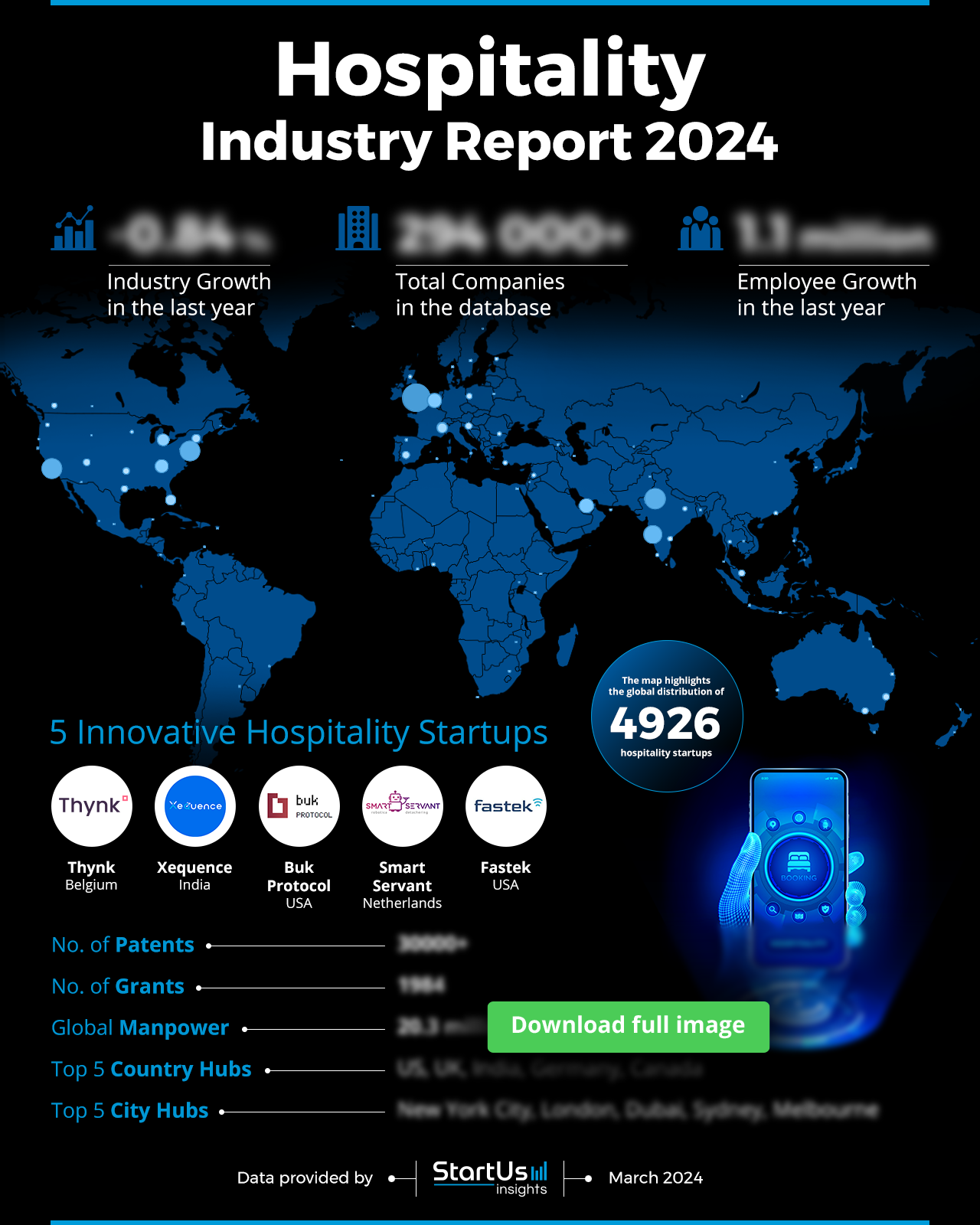
The industry has significant hubs in countries like the US, UK, India, Germany, and Canada, reflecting its global presence and impact. City hubs like New York City, London, Dubai, Sydney, and Melbourne have emerged as central nodes in the hospitality network. There are almost 5K+ companies actively innovating in the hospitality sector, contributing to a patent portfolio of over 30000 patents and 1984 grants.
What data is used to create this hospitality industry report?
Based on the data provided by our Discovery Platform , we observe that the hospitality industry ranks among the top 5% in the following categories relative to all 20K topics in our database. These categories provide a comprehensive overview of the industry’s key metrics and inform the short-term future direction of the industry.
- News Coverage & Publications: The hospitality industry has a significant presence, with over 80000 publications in the past year.
- Funding Rounds: Our database contains data of more than 48000 funding rounds, ranking it among the top performers.
- Manpower: The industry employs more than 20 million workers and has added over 1 million new employees in the last year.
- Patents: The sector shows a commitment to innovation, holding over 30000 patents.
- Grants: It has also secured 1900+ grants, demonstrating its ability to attract support and funding for its projects and initiatives.
A Snapshot of the Global Hospitality Industry
The hospitality industry shows steady resilience and growth. With a workforce of over 20 million individuals, this sector is a notable employer worldwide. The industry’s potential for growth is evident in its addition of 1.1 million employees over the past year. Further, the hospitality sector is vast and diverse, with over 294000 companies. These businesses, from small family-run establishments to large multinational chains, each add to the industry’s dynamism and innovation.
Explore the Funding Landscape of the Hospitality Industry
The hospitality industry presents a steady and promising investment environment. With an average investment value of USD 30.5 million per round, it is evident that stakeholders are promoting growth and innovation within this sector. The participation of more than 14000 investors supports the industry’s robust investment ecosystem. This significant number of investors provides funds as well as expertise, advancing the industry in unique and innovative ways. Further, the industry has seen the closure of more than 48000 funding rounds, reflecting its active financial transactions. The investment extends to more than 20000 companies, indicating the industry’s wide reach and diversity.
Who is Investing in the Hospitality Industry?
The hospitality industry has received significant investment, totaling over USD 14 billion from top investors. Here’s the list of notable investors:
- Tiger Global Management has invested USD 2.8 billion across 43 companies, showing its influence in the hospitality sector.
- Goldman Sachs has invested USD 2.2 billion in 33 companies, indicating its commitment to the industry’s growth.
- SoftBank Vision Fund has directed USD 1.6 billion into 18 companies, demonstrating its focus on ventures with growth potential.
- Insight Partners has also invested USD 1.6 billion across 21 companies, indicating a targeted investment approach.
- Sequoia Capital has put USD 1.2 billion into 30 companies, showing its trust in the sector’s opportunities.
- T. Rowe Price has invested USD 1.2 billion among 10 companies, indicating a strategy focused on select opportunities.
- Warburg Pincus has allocated USD 975.3 million to 12 companies, emphasizing targeted investments in promising hospitality ventures.
- Temasek Holdings has invested USD 939.8 million invested in 12 companies, underlining its interest in the sector’s growth.
- GIC has committed USD 832.1 million across 16 companies, showcasing its investment in the hospitality industry’s expansion.
- Accel has invested USD 814.1 million spread over 31 companies, highlighting its broad and strategic engagement in the sector.
These investments from key financial entities support the hospitality industry’s operations and lay a foundation for its future.
Gain Access to Top Hospitality Innovations & Industry Trends with the Discovery Platform
The data shows the growing hospitality trends over the last year, highlighting the ones with the highest mentions and company involvement. AI for restaurants has 300+ mentions and involves 198 companies. Food delivery robots, with 400+ mentions and 74 companies engaged, indicate interest in this innovation.
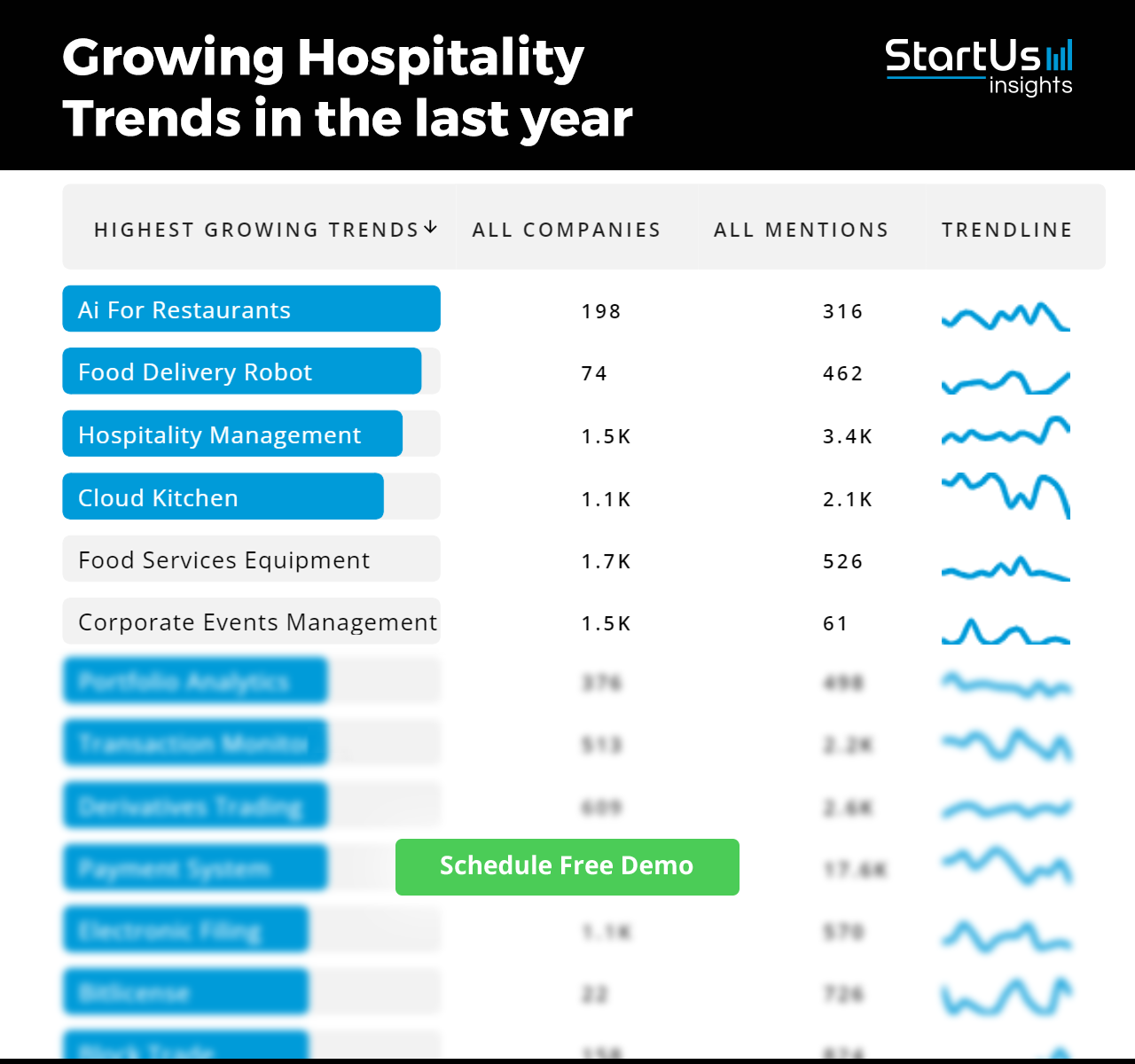
Explore Firmographic Data for All Hospitality Industry Trends
In terms of company involvement, hospitality management, and food services equipment trends stand out, involving 1.5K and 1.7K companies respectively. Cloud kitchens, with 1.1K companies, also have a significant presence, reflecting the emergence of this new business model. Book a platform demo to explore all hospitality industry trends in more detail.
- AI for Restaurants is improving customer experiences, streamlining operations, and creating new service delivery and personalization opportunities. There are currently 198 companies in this space. These companies collectively employ 12K+ individuals, with an addition of 1K+ new employees in the last year. The annual trend growth rate of 31.61% indicates the ongoing adoption and development of AI technologies in restaurants.
- Food Delivery Robots are changing the logistics of food delivery by increasing speed, reducing costs, and meeting the growing demand for contactless delivery options. There are 74 companies in this sector, employing a workforce of 3K+ employees, including 600+ new hires in the last year. The annual trend growth rate of 13.78% shows a steady interest and investment in robotic delivery solutions.
- Cloud Kitchen , also known as Ghost Kitchens, is becoming an important part of the restaurant industry, driven by the surge in online food ordering. There are 1000+ companies in this sector, employing a workforce of 69K+ individuals. The sector added 8K+ new employees in the last year. With an annual trend growth rate of 22.28%, cloud kitchens are rapidly gaining traction, providing restaurants with a cost-effective way to expand their reach without the overhead of traditional dining spaces.
5 Top Examples from 4000+ Innovative Hospitality Startups
The five innovative startups showcased below are picked based on data including the trend they operate within and their relevance, founding year, funding status, and more. Book a platform demo to find promising startups, emerging trends, or industry data specific to your company’s needs and objectives.
Thynk provides Hospitality Cloud
Belgium startup Thynk offers Thynk Platform , an integrated platform with hospitality modules. The platform uses Salesforce to streamline operations through process automation. It offers features such as multi-property management, automation, mobility & productivity, and security & administration. The startup’s platform also provides access to PMS data, offering centralized and clean data along with robust analytics. Consequently, Thynk provides hoteliers with resources for making decisions that contribute to profitability and strategic planning.
Xequence offers AI-powered Virtual Assistant
Indian startup Xequence develops RIDA , an AI-driven virtual assistant to assist travelers and travel operators. This platform leverages AI to make travel plans quicker, smoother, safer, and more economical. Its RIDA AI Rail Assistant provides train information, simplifies ticket booking, customizes trip planning, and offers travel advice and suggestions. The RIDA Flight Assistant offers updates on flights, assists with bookings, provides support for baggage and security, and gives local recommendations. Lastly, RIDA Hotel AI Assistant offers tailored assistance, optimizes processes, safeguards privacy, and ensures secure interactions.
Buk Protocol creates an Ecosystem for Dynamic RWAs
US startup Buk Protocol develops a decentralized, open-chain protocol to enhance the flexibility of travel inventory distribution and booking. It establishes a modular infrastructure for dynamic RWA dApps and marketplaces. The startup also facilitates the creation of secondary markets for all expiring assets, which encompass dynamic RWAs such as hotel bookings, event tickets, airlines, and more. This protocol benefits all participants, including travelers and asset owners like hotels, airlines, tour operators, and event organizers.
Smart Servant provides Hospitality Robots
Dutch startup Smart Servant offers service and cleaning robots for the hospitality sector. Its Plato robots are adept at serving and clearing tasks, and handling food and drink delivery in self-service restaurants. These robots also gather dirty dishes and move them to the dishwashing area. The startup’s Keenon W3 robots specialize in room service, delivering food and drinks to hotel rooms. These robots interact with elevators through an integrated lift module or an API connection. Smart Servant’s Gaussian robots concentrate on hygiene and efficiency, contributing to personnel cost reduction.
Fastek enables Remediation and Equipment Monitoring
US-based startup Fastek focuses on the application of sensor technology and IoT sensors. It provides solutions for remediation and equipment monitoring, which assist businesses in automating manual tasks. This leads to the creation of facilities that are safer, smarter, and more environmentally friendly, while also minimizing downtime. The startup offers asset tracking, which contributes to a secure work environment for employees. A notable feature is the panic button technology, which improves worker safety.
Looking for Comprehensive Insights into Hospitality Trends, Startups, or Technologies?
The hospitality industry outlook report depicts a sector that is resilient in the face of global pressures – with millions of new tourists poised to join the industry soon. AI for personalized service and cloud-based operational platforms suggest a shift towards a more responsive, data-driven, and customer-oriented industry. Book a platform demo to explore all 4000+ startups and scaleups, as well as all industry data and trends impacting hospitality companies.
Your Name Business Email Company
Get our free newsletter on technology and startups.
Protected by reCAPTCHA and the Google Privacy Policy and Terms of Service apply.
Discover our Free Climate Tech Report 21 pages
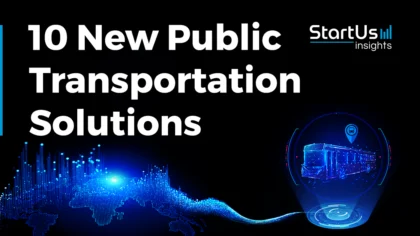
FoodTech 21 pages report
Beverage technology 21 pages report, fashion tech.
Leverage our unparalleled data advantage to quickly and easily find hidden gems among 4.7M+ startups, scaleups. Access the world's most comprehensive innovation intelligence and stay ahead with AI-powered precision.
Get started
Your Name Business Email Company How can we support you? (optional)
Business Email

Protected by reCAPTCHA and the Google Privacy Policy and Terms of Service apply.
Top 5 Hospitality Industry Trends to Watch in 2024
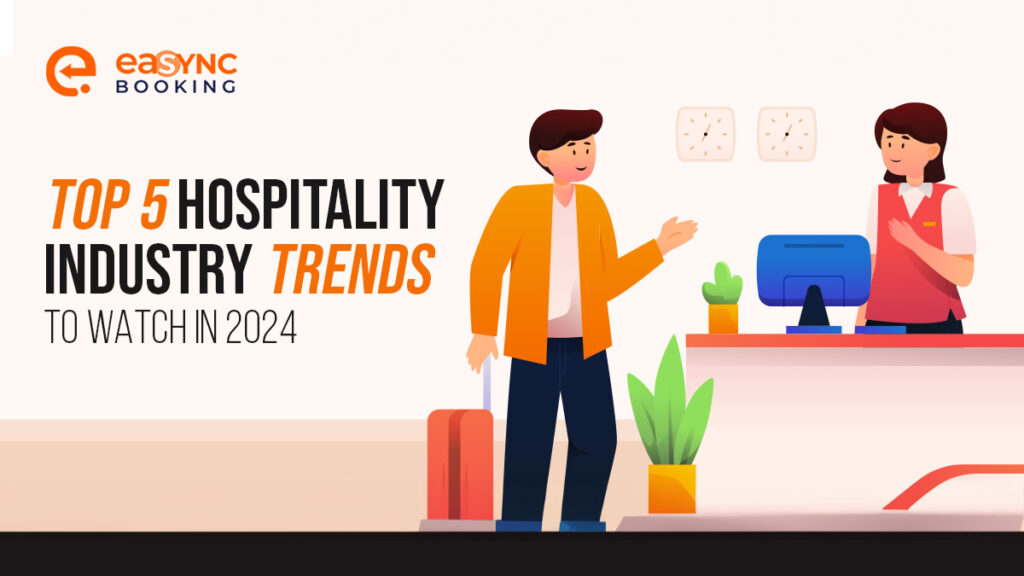
Hospitality trends are always evolving, and players in the industry must stay updated to remain relevant and competitive. These trends, which include using reservation management systems like a WordPress hotel booking plugin, can significantly improve your hotel workflows.
Staying on top of hospitality trends is necessary for businesses to meet the demands of their guests and stay competitive. This industry, in particular, is known for its constant growth due to the changing preferences of guests, technological innovations, and global events.
Here’s a consolidated list of trends in the hospitality industry:
Top 5 Hospitality Industry Trends in 2024
Personalized experiences.
Personalization is becoming one of the cornerstones of customer satisfaction in the hospitality industry. Today, guests can expect tailored services according to their needs and preferences.
Understanding this trend requires a deep understanding and anticipation of guest expectations. So, why should you adapt to this as a hospitality service provider? It’s simple: these experiences garner numerous positive results, such as repeat stays and more.
Moreover, customers are more confident in hospitality services when they deliver personalized assistance. According to 2020 data, 46% of customers are somewhat confident with these experiences, and 27% are quite confident.
Source: Statista .
Hospitality establishments can use different strategies to improve their personalization. Moreover, these could be incorporated into their WordPress website’s booking plugins.
Reservation software usually requires guests to input specific information during the booking process, and hotels can use it to collect relevant data. As a result, hoteliers can build a guest profile and tailor their services, packages, and add-ons to it.
Multi-Channel Marketing Strategies
Businesses use different marketing channels. In fact, one of the trends in the hospitality industry is putting the different platforms to good use. These avenues for marketing include SMS, emails, social media, and more. The five benefits of multi-channel marketing include the following:
- Reaches a larger audience;
- Builds stronger brand awareness;
- Helps achieve faster time to conversion;
- Gives better insights into your ideal customers, and
- Boosts campaign performance.
By utilizing these strategies, potential guests no longer have to search the Internet for the ideal place to stay. Hospitality businesses can reach prospects and invite them to stay in their establishment using various channels. Furthermore, getting the word out about existing promos or vouchers guests can use would be an excellent strategy.
Flexibility in Booking and Cancellation Policies
The perk guests look for when browsing hotel websites is the accommodation’s booking and cancellation flexibility. Why do guests prefer hotels with flexibility in this matter? Unforeseen circumstances may arise, like conflicts in scheduling and emergency situations. With this flexibility, they can modify their booking accordingly.
Additionally, adjustable booking cancellation policies can give your guests a sense of validation when updating their reservations. In this regard, it results in positive relationships.
Data-Driven Decision-Making
Data impacts numerous industries, hospitality included. These figures help decision-makers make informed choices for the business’ betterment. In addition, data provides hoteliers with a competitive advantage in the process of adapting to their customers’ needs. It can be used to improve marketing efforts and hotel operations.
An example of this is hotel rate management with a hotel booking system. Data allows hotels to maximize their earnings and reach sales objectives. With the use of WordPress hotel booking plugins, it can augment a business’ revenue by adjusting hotel rates automatically depending on specific dates.
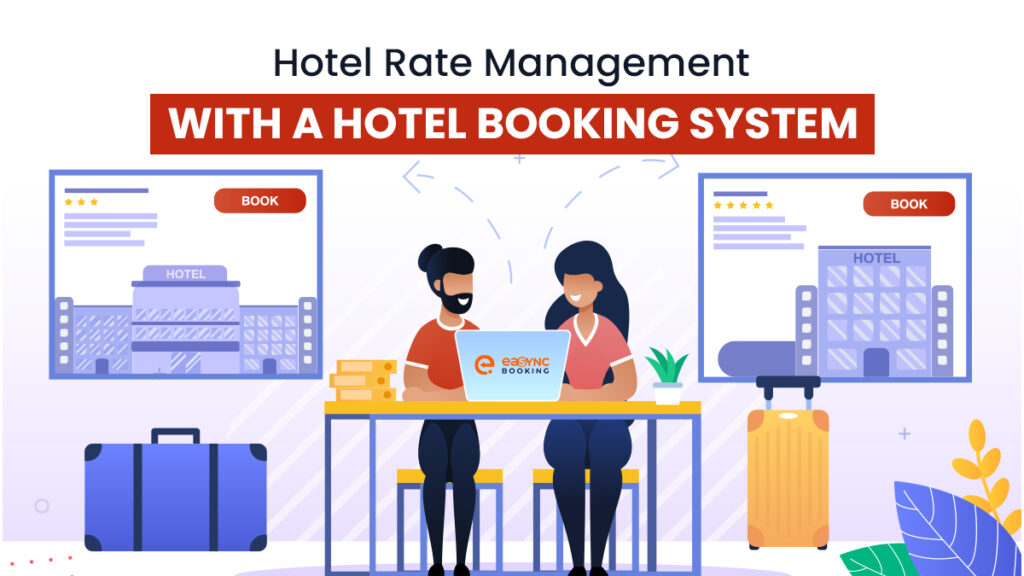
Integration of Advanced Booking Solutions
Another one of the top hospitality industry trends is the addition of advanced booking solutions. They offer numerous benefits to both the establishment and guests. For instance, customers can book a room early through a booking plugin.
Early booking occurs when guests reserve a room for a specific number of days before their stay. These reduce the number of walk-ins, and guests can be accommodated upon arrival based on their check-in date and time. Moreover, hotel owners can prevent overbooking with a streamlined monitoring system.
That said, more and more guests are reserving their travel sleeping arrangements online via a computer or smartphone. In fact, statistics show guests want numerous services at the touch of a button.
Image Source: Hospitality Net .
Hospitality entrepreneurs now make it a point to have a reservation platform, like a WordPress hotel booking plugin, to keep up with demand and competition. A few key features of such a system include:
- Calendar view of customer reservations
- Cancellation of bookings
- Customizable pages and policies
- PayPal payment gateway integration
- Email notifications
- Custom search form
- Hotel room configuration
At first, operating a booking plugin may seem overwhelming. However, there is a list of the best practices for effective booking management, which include:
- Streamline your business’ booking process
- Consistently communicate with customers
- Optimize your payment processing
- Leverage analytics in improving decision-making
- Implement booking flexibility
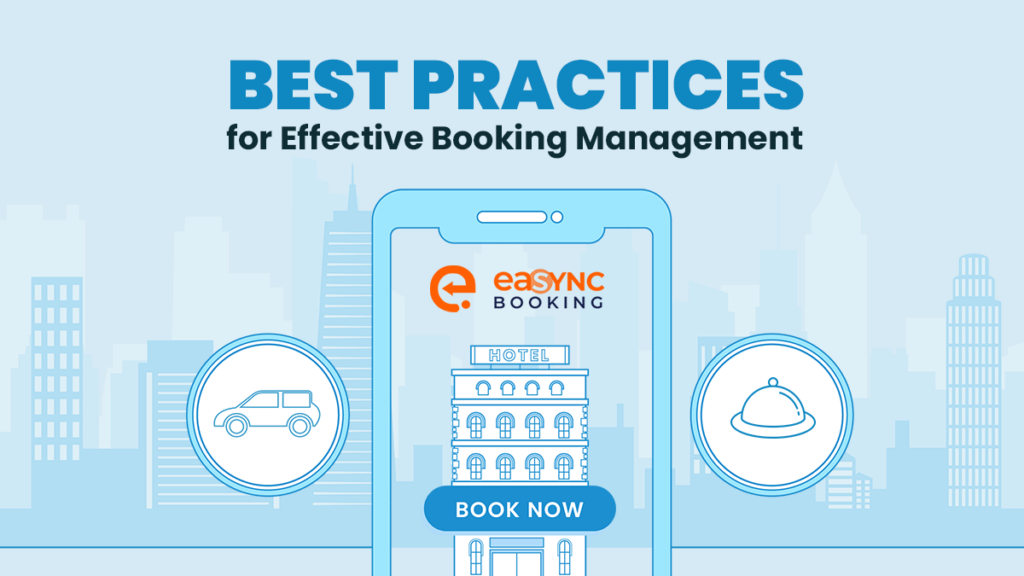
Improve Sales, Customer Experience, and More with the Right WordPress Booking Plugin!
You could incorporate various hospitality industry trends into your current strategies, such as using a WordPress hotel booking plugin. Doing so can improve your sales, customer experience, and more.
Embracing these changes will be key to thriving in the dynamic hospitality landscape of 2024.
Leave a comment
Cancel reply.
Your email address will not be published. Required fields are marked *
Related Articles
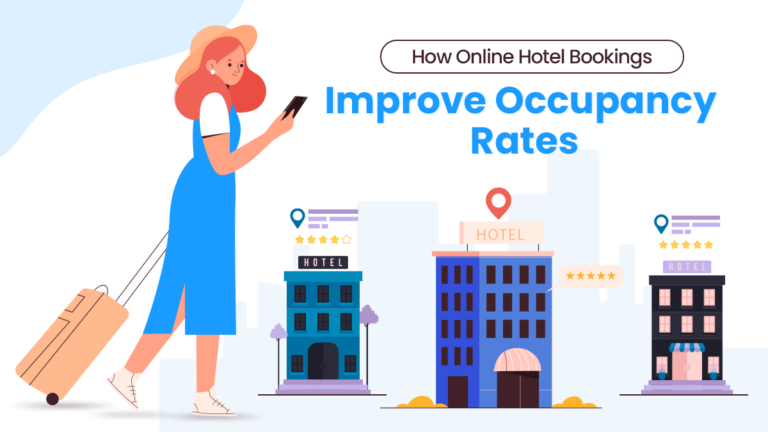
How Online Hotel Bookings Improve Occupancy Rates
Online Hotel Bookings provide hospitality establishments with a steady stream of customers. Hotel businesses...

WordPress Plugin for Hotel Booking: A Guide
Your hotel needs a booking system as an alternative channel to direct bookings. After all, the Online Travel Market will amount to “approxi...

QR Codes for Hotels and Their Many Benefits
World events and technology play a vital role in the hospitality industry. For instance, Quick Response or...

Simplify Hotel Check-In Process in 4 Easy Ways
One bad customer experience can negatively cost your business. You have to make sure to provide a positive...
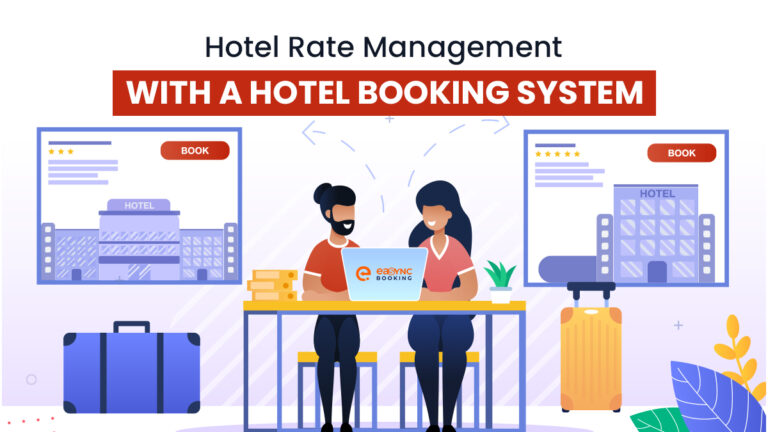
Hotel Rate Management with a Hotel Booking System
Hotel Rate Management allows hotels to maximize profit and reach their sales goals. Fortunately, WordPress...
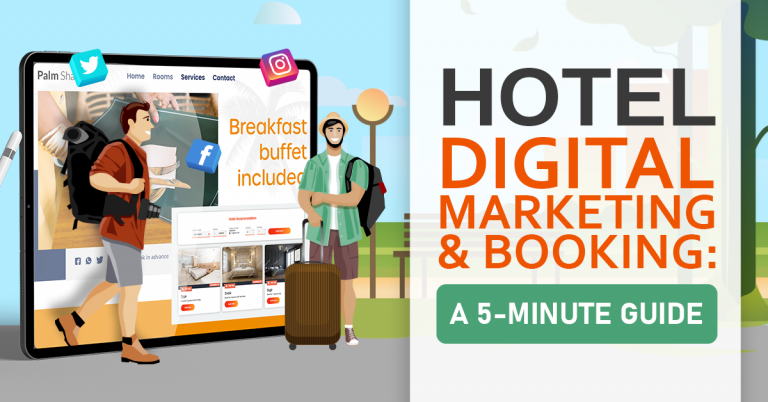
Hotel Digital Marketing and Booking: A 5-Minute Guide
The tourism and travel sectors around the world continue to play up their game in managing online...

For questions relating/regarding
the booking plugin and general issues.
" * " indicates required fields
Name Email Address Subscribing I accept the privacy rules of this site
- Industry News
- Trends Issues
- Women in Hospitality

WTTC: U.S. travel and tourism sector to cross $2.5 trillion mark in 2024
Prioritizing visa processing, border queues and staffing is crucial

THE TRAVEL AND tourism sector’s contribution to the state exchequer is set to surpass $2.5 trillion in 2024, 9 percent of the U.S. economy, according to the World Travel & Tourism Council. Furthermore, the sector will employ approximately 18.8 million people nationwide, with one in nine Americans working in travel and tourism.
However, focus on visa processing, border queues and staffing issues is essential ahead of the FIFA World Cup and the Olympics, the global tourism body recently said.
The WTTC’s 2024 Economic Impact Research found that the sector contributed approximately $2.36 trillion in 2023, registering a 7 percent growth, compared to the previous year’s contribution of $100 billion. Moreover, the sector’s jobs rose by 656,000 to reach 18 million across the country, breaking the previous record of 17.4 million.
Last year, domestic visitors spent $1.37 trillion, up by more than 9 percent from the previous peak in 2019. However, international visitor spending stood at $156.1 billion, which is more than a quarter behind the same 2019 peak.
“The U.S. is breaking all records in travel and tourism, employing 18 million people and boosting the U.S. economy by almost $2.4 trillion,” said Julia Simpson , WTTC’s president and CEO. “The U.S. government has supported travel and tourism, but international visitor spend is still below 2019 numbers. A focus on visa processing, queues at borders, and staffing would give the sector a vital lift in advance of the FIFA World Cup and the Olympics.”
The job sector has now surpassed pre-pandemic levels, with travel and tourism jobs accounting for an 11.2 percent share of the job market with a total of 18 million jobs.
“The travel and tourism sector not only significantly contributes to the generation of jobs but gives opportunities to young people and women of all skill levels,” Simson added.
Domestic visitor spending is anticipated to continue growing, to reach $1.43 trillion, beating the 2019 record by almost 14 percent, the WTTC said. However, international visitor spending is forecast to still be behind 2019 levels. International visitor spending is likely to remain more than $20 billion in 2024 behind its previous peak.
WTTC’s Hotel Sustainability Basics program now includes over 1,700 verified hotels spanning 70 countries, assisting hoteliers globally. Leading hotel groups from countries such as France, China, Mexico, India, Germany, South Africa, the Philippines and Norway have joined the initiative.
RELATED ARTICLES MORE FROM AUTHOR

CoStar: U.S. hotel performance mixed in first week of April, positive YOY

Omega Hotel Group sells Best Western in Destin, FL

Subscribe Newsletter
- Terms & Conditions
- Privacy Policy

- Hospitality and Tourism Management
- Operations and Information Management
- Sport Management
- Prospective Undergraduate Students
- Master of Finance
- MS Accounting/Forensics Certificate
- MSBA/Analytics Certificate Students
- MS Sport/MBA Dual
- On-Campus MBAs
- Online MBAs
- MBA/MSBA Duals
- MPPA/MBA Duals
- Graduate Prospective Students
- BIPoC Students
- First Generation Students
- International
- LGBTQIA+ Students
- Students with Disabilities
- Cover Letters
- Interview Prep
- Job/Internship Search
- Professionalism
- Career Coaching for Undergrads
- Executive Coaching for Grad Students
- Career Peers for Undergrads
- Make an Appointment
- Featured Jobs & Internships
- All Handshake Jobs & Internships
- Gain Insights Into Your Career & Industry
- Internship & Co-op Process
- Campus Recruiting Policies
- Employer Recruitment & Offer Acceptance
- Undergraduate Student Organizations
- Graduate Student Organizations
- Student Organizations Hub
Insights into Your Industry: Hospitality and Tourism Management
- Share This: Share Insights into Your Industry: Hospitality and Tourism Management on Facebook Share Insights into Your Industry: Hospitality and Tourism Management on LinkedIn Share Insights into Your Industry: Hospitality and Tourism Management on X
Have you ever wondered what the job market is like for hospitality and tourism management grads in different parts of the country? What salary you can expect to earn? How you can tell if you have the skills and qualifications you need to be successful?
This information is key to career planning. When you have insights into current industry trends, you’ll be able to plan which classes to take, which internships to pursue, and where to focus your job search.
You can find the answers to all these questions and more by using the “ Insights Into Your Industry ” database search tool!
Search by keyword to get started. Or if you’re not sure what to search for, filter down by pre-selected industry areas and see suggestions for job titles. We also have a video tutorial to help you get started.
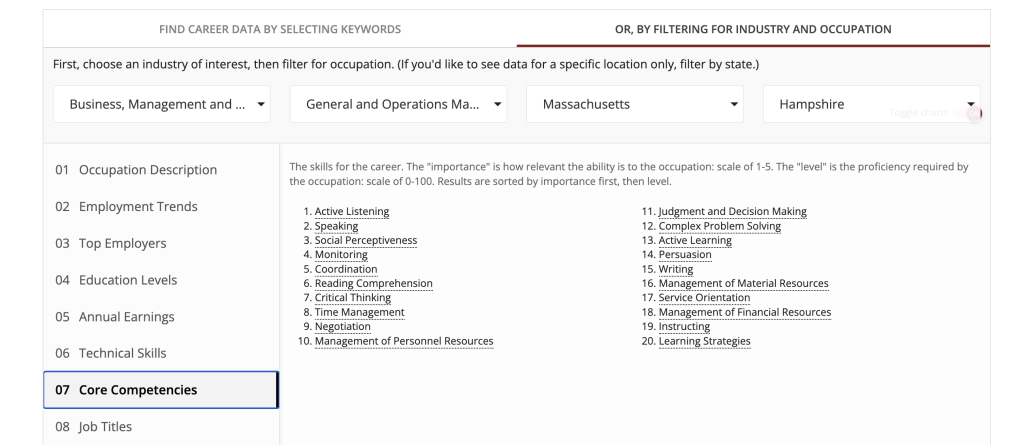
This tool will show you key information like:
- Occupations Description- What does someone in this job do on a day to day basis?
- Employment Trends- What is the demand for this job and is it expected to go up or down?
- Top Employers- Which companies are hiring?
- Education Levels- Are people getting hired with a bachelor’s degree or should I look into a master’s degree?
- Annual Earnings- How much can I expect to make in a job like this?
- Technical Skills- What are the technical skills needed to be successful?
- Core Competencies- What are some of the transferable skills that are most important in this type of job?
- Job Titles- What are some common job titles I can look out for as I’m searching for jobs?
Plus, you can even narrow your search by state and county to see what the market is like in specific areas.
Start exploring today!
Tying the Knot Abroad: Market Sizing Indian Wedding Tourism – New Skift Research
Varsha Arora, Skift
April 10th, 2024 at 9:53 AM EDT
Alongside the Indian travel boom is a growing international Indian wedding market, with lucrative opportunities across the tourism ecosystem.
Skift Research’s latest report, “ Tying the Knot Abroad: Market Sizing Indian Wedding Tourism ,” presents a comprehensive analysis of India’s international wedding market. It highlights key trends, preferences, and challenges faced by hosts, planners, and businesses involved in organizing these extravagant celebrations abroad.
The global wedding industry is experiencing a notable shift as more Indian couples opt for international destinations. Skift Research’s survey reveals that this trend has created a thriving market, estimated at $1.9 billion (₹159.6 billion) in outbound travel spending. Most newlyweds who had an international destination wedding in the past year strongly skew towards high-budget weddings, averaging around $200,000 (₹1.8Cr).
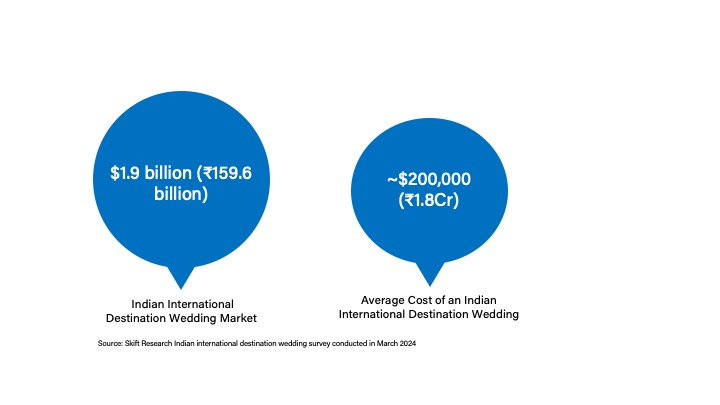
Wedding planners play a critical role in the success of international destination weddings, often serving as key decision-makers. Our survey data reveals that 97% of Indians opting for international destination weddings in the past year engaged a wedding planner.
Businesses can benefit from strategic partnerships and exclusivity agreements with wedding planners, ensuring a steady influx of Indian weddings to their venues and services. Accommodation providers, in particular, stand to gain by offering competitive rates and tailored packages for bulk bookings, catering to the preference among hosts for housing guests at a single location.
The data also underscores the significance of online booking channels, highlighting the potential for targeted marketing efforts by OTAs and other platforms.
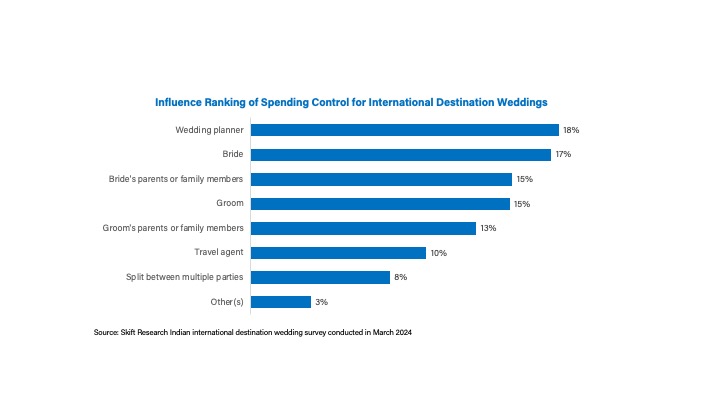
While international destination weddings currently constitute a smaller segment compared to overall Indian weddings, their rapid growth and significant economic impact cannot be overlooked. They not only offer a unique and memorable experience for couples and guests but also contribute significantly to the tourism and hospitality sector. Despite being less than 1% of all weddings, these extravagant affairs represent 5%+ of India’s international travel.
What you’ll learn from this report:
- The scale of the Indian international destination wedding market.
- Reasons why Indian couples choose international destinations for their weddings.
- Main decision makers involved in planning international destination weddings.
- Primary markets where Indian couples prefer to have their international weddings.
- Latest trends and preferences in planning and booking international destination weddings.
- Common challenges faced by hosts, planners, and businesses in organizing these weddings.
- Actionable insights for businesses looking to cater to the Indian international destination wedding market.

Tying the Knot Abroad: Market Sizing Indian Wedding Tourism
The Indian outbound travel boom is accompanied by a growing international Indian wedding market, offering lucrative opportunities across the tourism ecosystem.
This is the latest in a series of reports and data products that Skift Research puts out to help you analyze the biggest trends in the travel industry. Tap into the opinions and insights of our seasoned network of staffers and contributors. More than 200 hours of desk research, data collection, and/or analysis goes into each report.
By subscribing to Skift Research, you will gain access to our entire vault of reports conducted on topics ranging from technology to marketing strategy to deep dives on key travel brands. You will also be able to access our proprietary Skift Travel Health Index, Skift Travel Company Tracker, Hotel Tech Benchmark, and data from our regular traveler surveys.
Have a confidential tip for Skift? Get in touch
Tags: booking trends , expenditure , india outbound , indian weddings , market size , Travel Trends

IMAGES
VIDEO
COMMENTS
Key takeaway from EHL's hospitality industry trends 2024 - Crafting experiences, influencing lives, and paving the way to tomorrow. In today's hospitality landscape, it is difficult to confine ourselves to an annual update. Certainly, several general trends have been in place for years and continue to evolve, but by and large, this once cozy ...
Here you find ten of the most significant hospitality trends for 2024. So, start impressing your customers and outpace your competitors.
As travel resumes and builds momentum, it's becoming clear that tourism is resilient—there is an enduring desire to travel. Against all odds, international tourism rebounded in 2022: visitor numbers to Europe and the Middle East climbed to around 80 percent of 2019 levels, and the Americas recovered about 65 percent of prepandemic visitors 1 "Tourism set to return to pre-pandemic levels ...
9. The industry will continue to grapple with labor shortages. Unfortunately, the hospitality industry's labor issues are on track to persist in the coming year. According to the Washington Post, nearly 2 million hospitality and leisure jobs remain unfilled and this will likely continue into 2024.
Hospitality that benefits people and the planet. How will hotel companies improve the guest experience, create a happier workforce, and help fight climate change? Five of McKinsey's travel and hospitality experts—Margaux Constantin, Vik Krishnan, Matteo Pacca, Steve Saxon, and Caroline Tufft—envision the hotel industry of the 2030s.
The hospitality industry has undergone a seismic transformation over the last years. This period of change is set to continue through 2023, with shifts in demographics and technology, and the post-pandemic transition to a new normal all playing decisive roles. As a hotel management company with clients around the world, we have seen these ...
And yet the hospitality industry keeps on rolling; adapting to new realities and consistently treating trends as opportunities. Amid a backdrop of strong hotel development pipelines in many regions, I have selected a few of the key hospitality trends to be aware of, while also looking at how hoteliers are responding. 1. Welcoming the working nomad
After years of post-pandemic binge-buying, consumers are moving on from collecting stuff to collecting experiences. Here are three standout trends we're observing. Tour tourism. In 2023, world tours by Taylor Swift and Beyoncé demonstrated the power of tour tourism, bringing hotels significant bumps in revenue wherever they touched down.
Hotels can tap into the rapid changes in the world of work by also becoming remote and coworking hubs. In 2022, 16% of companies worldwide are fully remote, whereas 58.6% of the entire US ...
Download the full report. Our 2024 travel outlook takes a closer look at five trends expected to shape the industry this year: Suppliers find ways to touch up the travel experience. High interest rates and elevated costs of some goods can make it difficult to update, let alone upgrade, hotels. And some of airlines' biggest challenges have ...
Here's a glimpse into the key trends reshaping the industry landscape. As the hospitality sector enters a new era, technology, sustainability, and hyper-personalization redefine guest experiences and operational strategies. ... With 2023 already consigned to history as the year of tourism recovery, the hospitality industry, starting in 2024 ...
Here are the trends we're reading about that are key priorities for hospitality businesses in 2024: 1. Sustainability as a priority. With increasing global awareness of environmental issues, sustainability has transitioned from a buzzword to a core principle in the hospitality industry. Guests are actively seeking eco-friendly accommodations ...
The hospitality trends of 2024 also include a shift towards more sustainable practices, as the industry seeks to align with the growing demand for eco-friendly travel options. This reflects a broader change in the hospitality industry, where the emphasis on environmental responsibility is becoming increasingly pronounced.
Technology in Hospitality: 20 Trends Shaping the Industry in 2024. Jordan Hollander in. 1. Renewable Energy. The travel industry is a big producer of emissions, so guests and hoteliers are looking for ways to minimize their carbon footprints. Hotels are adopting a variety of sustainable practices, such as installing solar panels on-site ...
Based on the Hospitality Innovation Map, the tree map below illustrates the impact of the Top 10 Hospitality Trends. Startups and scaleups are developing solutions to bring digitalization and automation to the hospitality industry. This is why artificial intelligence and in-room technologies such as keyless doors, online ordering, and ...
That's the high-level picture, now let's dive into the data, and reveal the hospitality and travel trends shaping 2023. 1. High inflation and its impact on consumer travel spending. Inflation ...
The Hospitality Industry Report 2024 uses data from the Discovery Platform and encapsulates the key metrics that underline the sector's dynamic growth and innovation. The report indicates a slight decrease of 0.84% in industry growth over the past year. Despite this, the ecosystem continues to be active with over 294000 companies in the ...
3. Self-service and mobile tech are a must. One of the most enduring guest trends from the pandemic is the desire for self-service. Mobile reservations and contactless check-in/out were industry ...
In fact, one of the trends in the hospitality industry is putting the different platforms to good use. These avenues for marketing include SMS, emails, social media, and more. The five benefits of multi-channel marketing include the following: Reaches a larger audience; Builds stronger brand awareness; Helps achieve faster time to conversion;
And yet the hospitality industry keeps on rolling; adapting to new realities and consistently treating trends as opportunities. Amid a backdrop of strong hotel development pipelines in many regions, I've selected a few of the key hospitality trends to be aware of, while also looking at how hoteliers are responding. 1. Welcoming the working nomad.
4 min read12 April 2024. Follow. Deloitte: Key forces reshaping the travel and tourism industry — Source: Deloitte Development LLP. Economic, social, and technological shifts are pushing the ...
Abstract. "Recent Trends in Tourism and Hospitality" compiled from the thoughts and ideas of some of the foremost professionals from academia and industry. The articles, research studies, and ...
THE TRAVEL AND tourism sector's contribution to the state exchequer is set to surpass $2.5 trillion in 2024, 9 percent of the U.S. economy, according to the World Travel & Tourism Council. Furthermore, the sector will employ approximately 18.8 million people nationwide, with one in nine Americans working in travel and tourism.
This information is key to career planning. When you have insights into current industry trends, you'll be able to plan which classes to take, which internships to pursue, and where to focus your job search. You can find the answers to all these questions and more by using the "Insights Into Your Industry" database search tool!
Skift Research's survey reveals that this trend has created a thriving market, estimated at $1.9 billion (₹159.6 billion) in outbound travel spending. Most newlyweds who had an international ...
Overview MPTH112 Page 03 Marketing for hospitality and tourism refers to the network of associations and practices used in the travel industry to promote goods and services. Marketing focuses on unique experiences and customer service, while also emphasizing travel destinations, hotels, transportation alternatives, and local activities. Because most tourists plan their trips online, the travel ...
Knowledge of travel industry trends, destinations, and products. Prior experience in travel, hospitality, or related fields is preferred. Bachelor's degree in hospitality management, tourism, business administration, or a related field is an advantage. Job Types: Full-time, Permanent. Pay: ₹280,000.00 - ₹300,000.00 per year. Schedule: Day shift